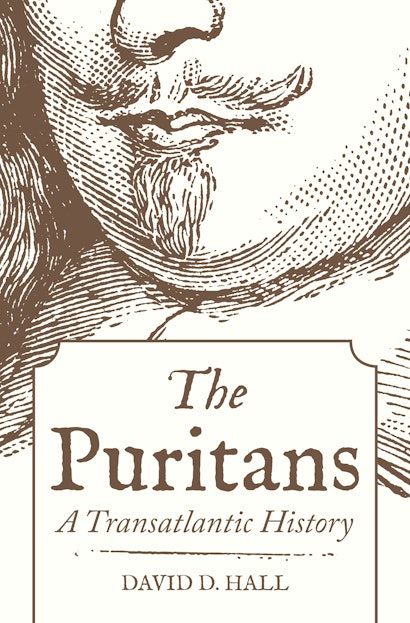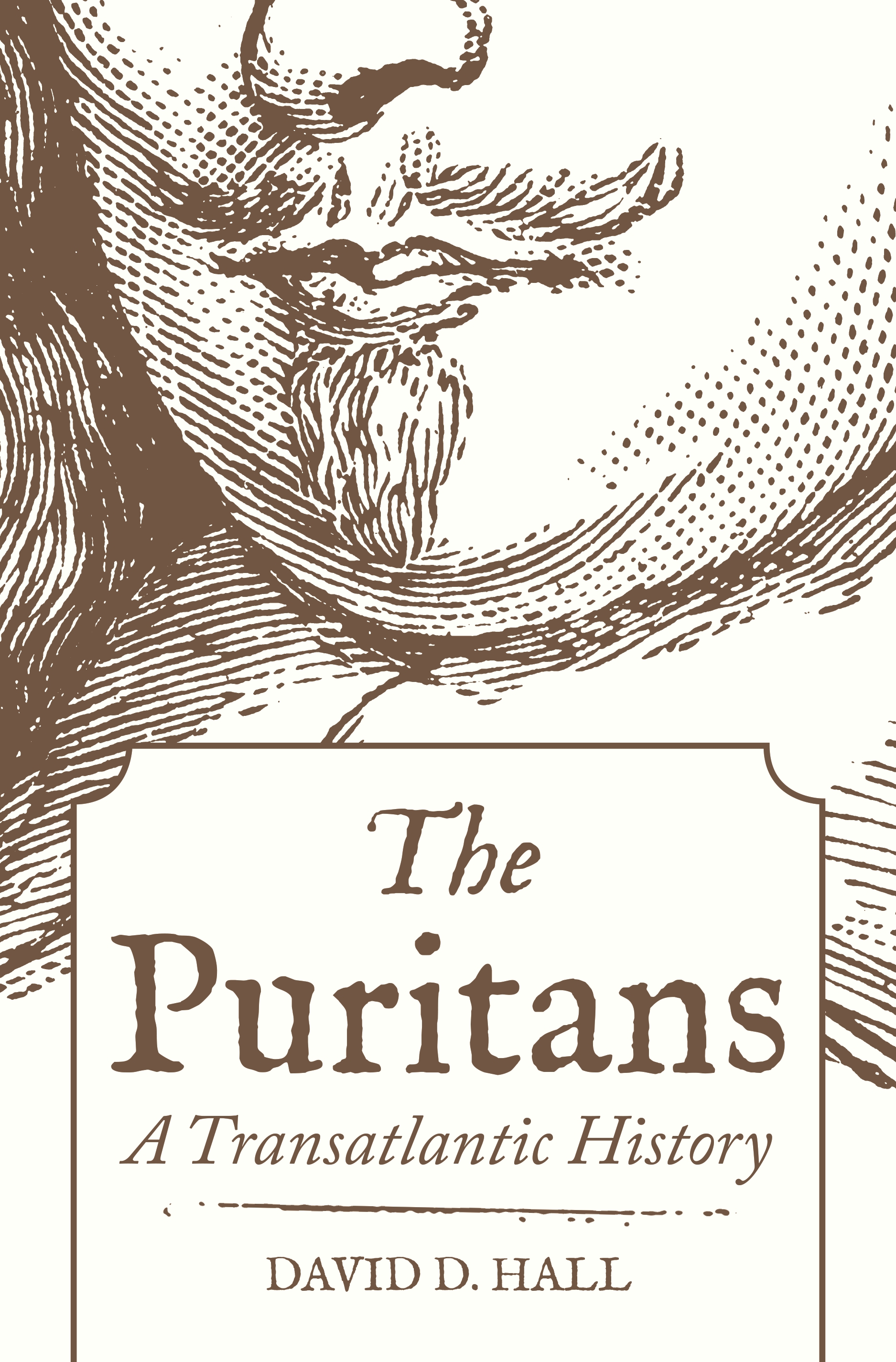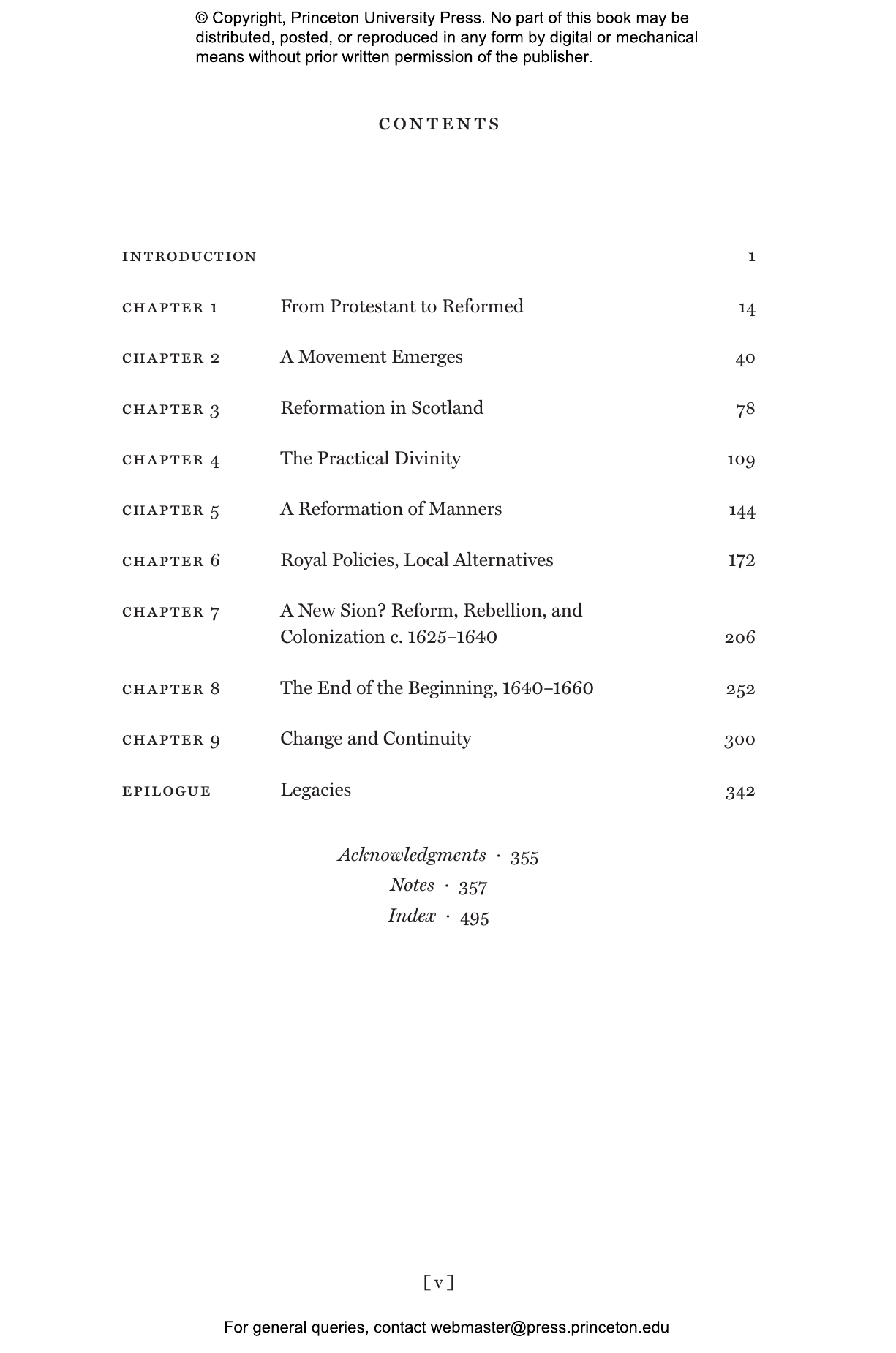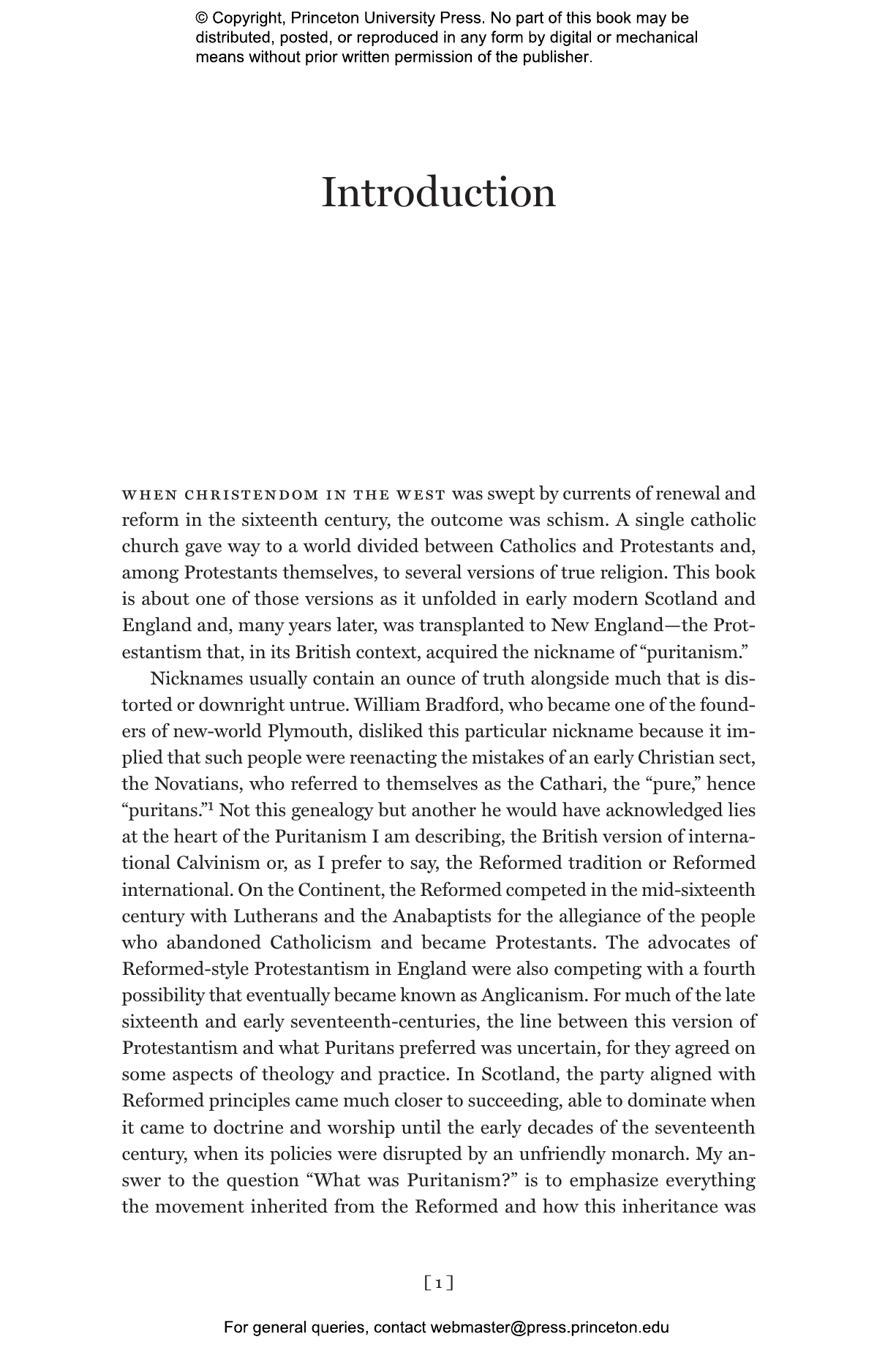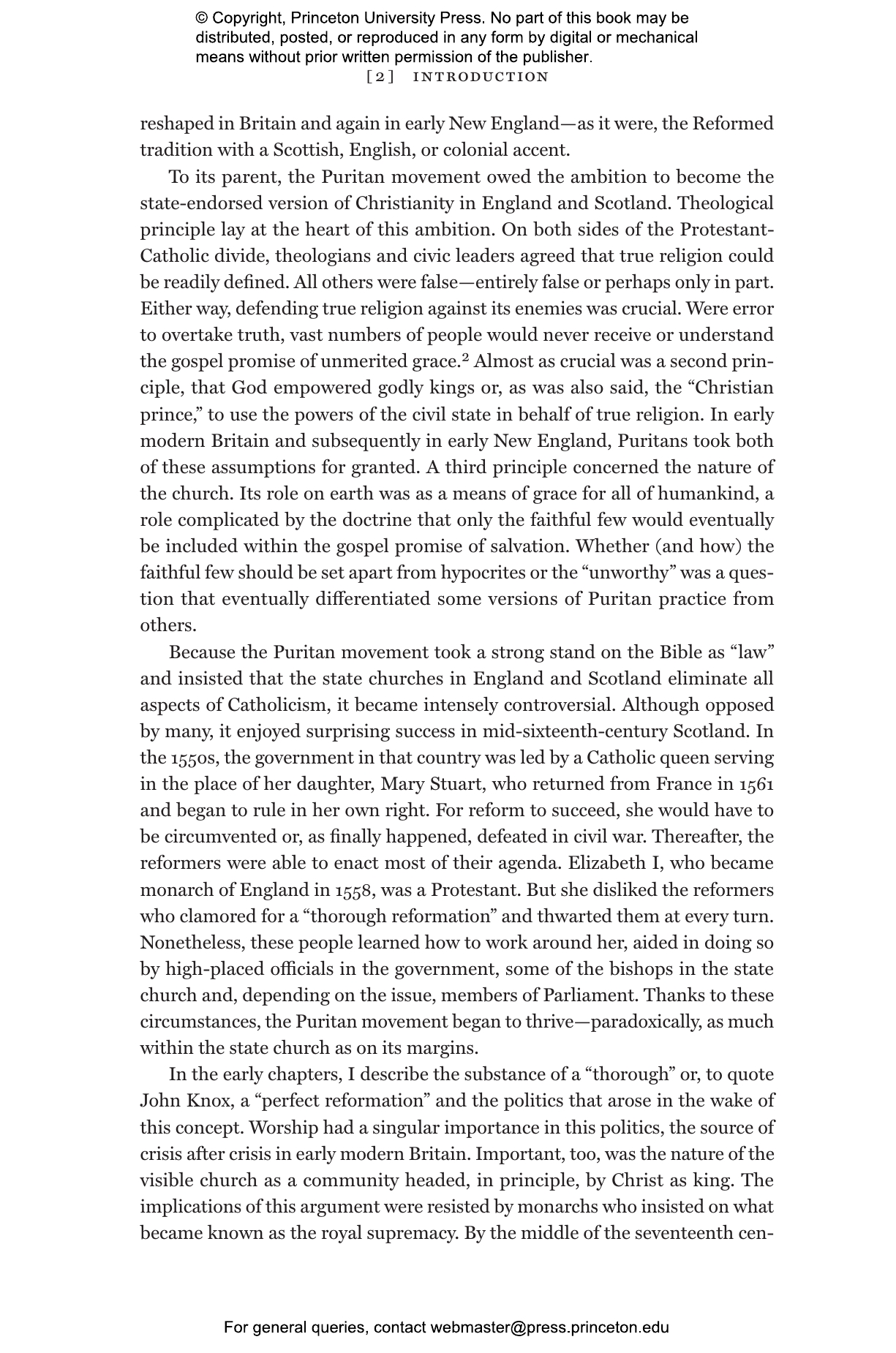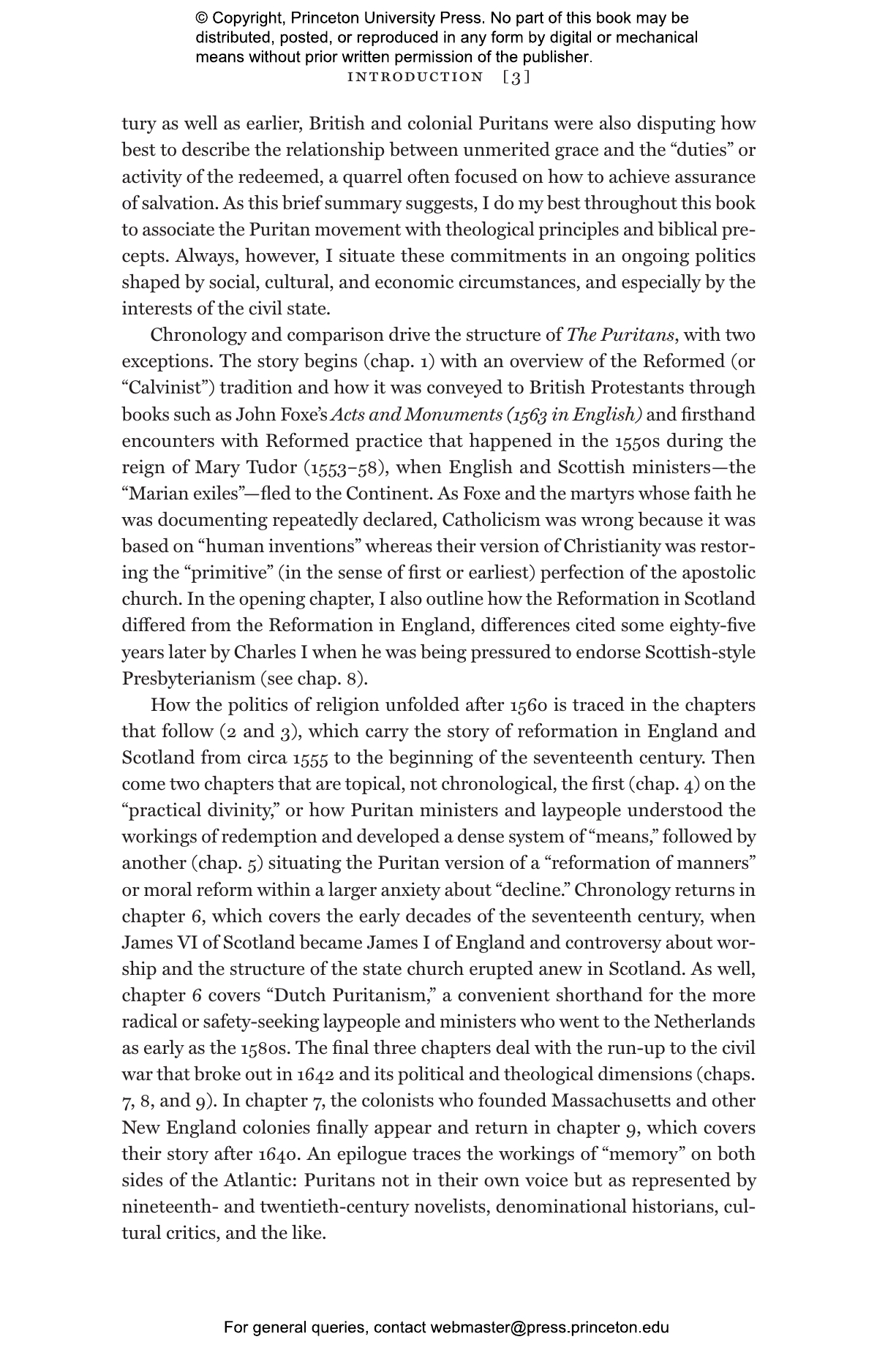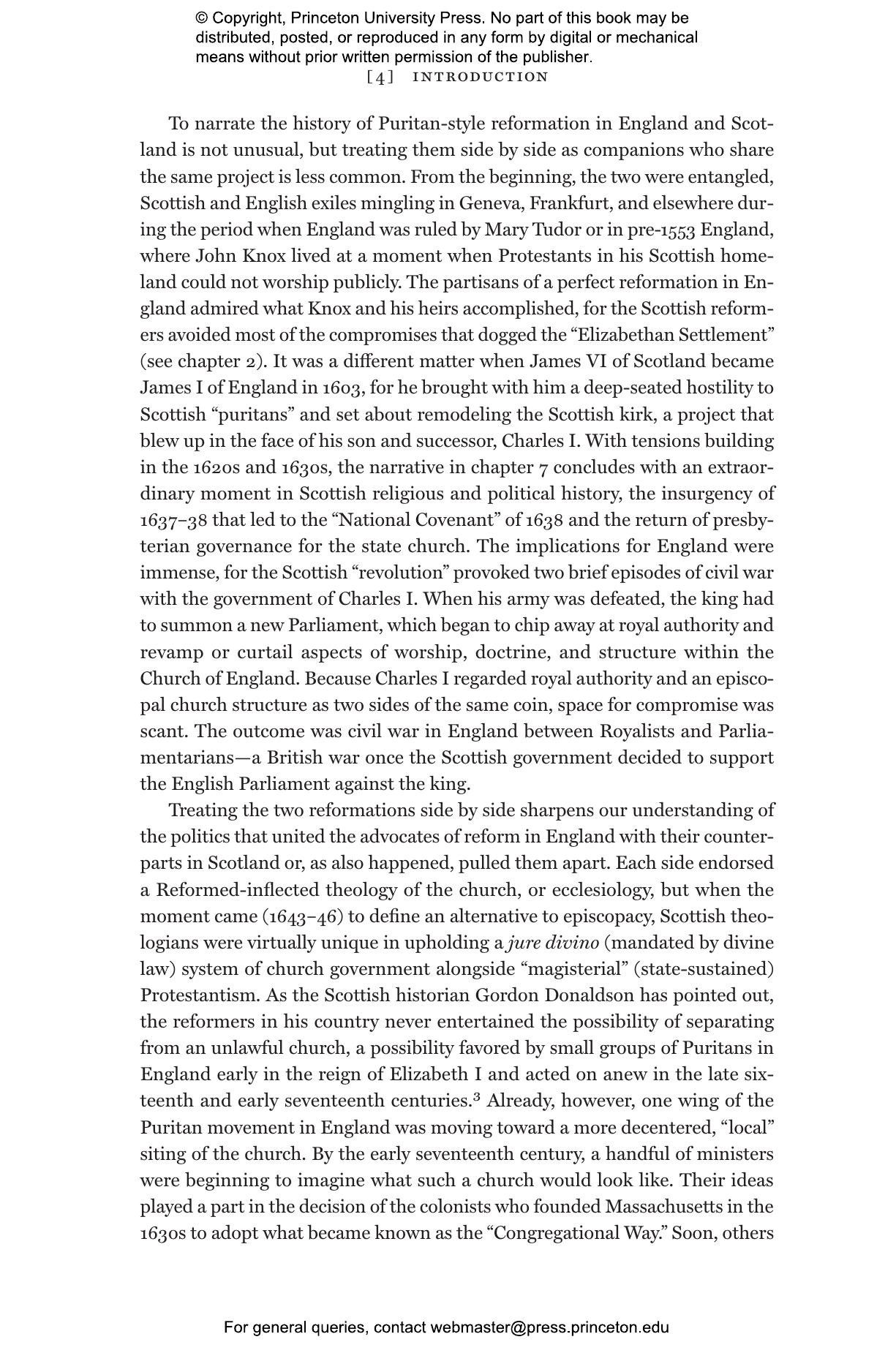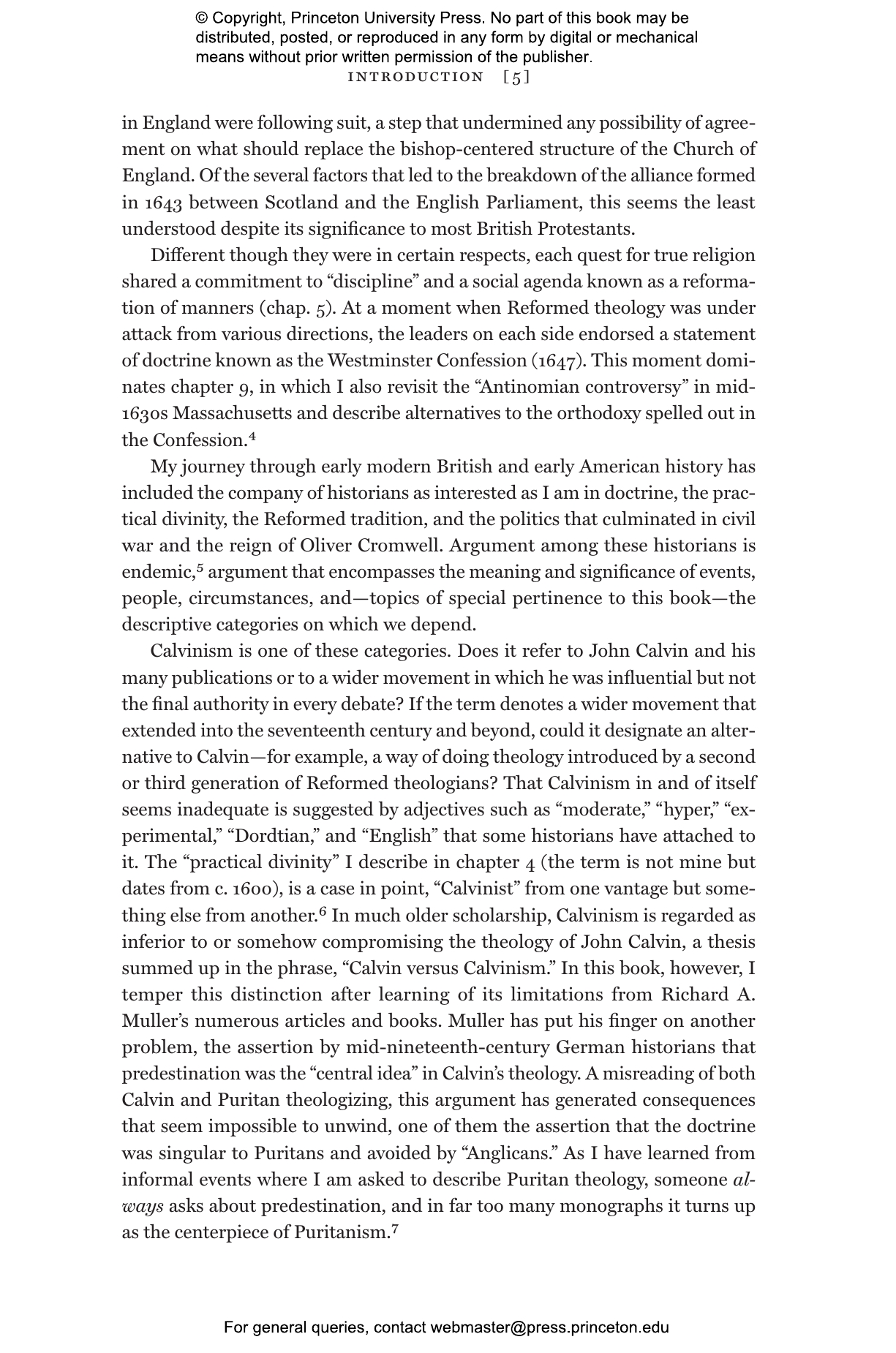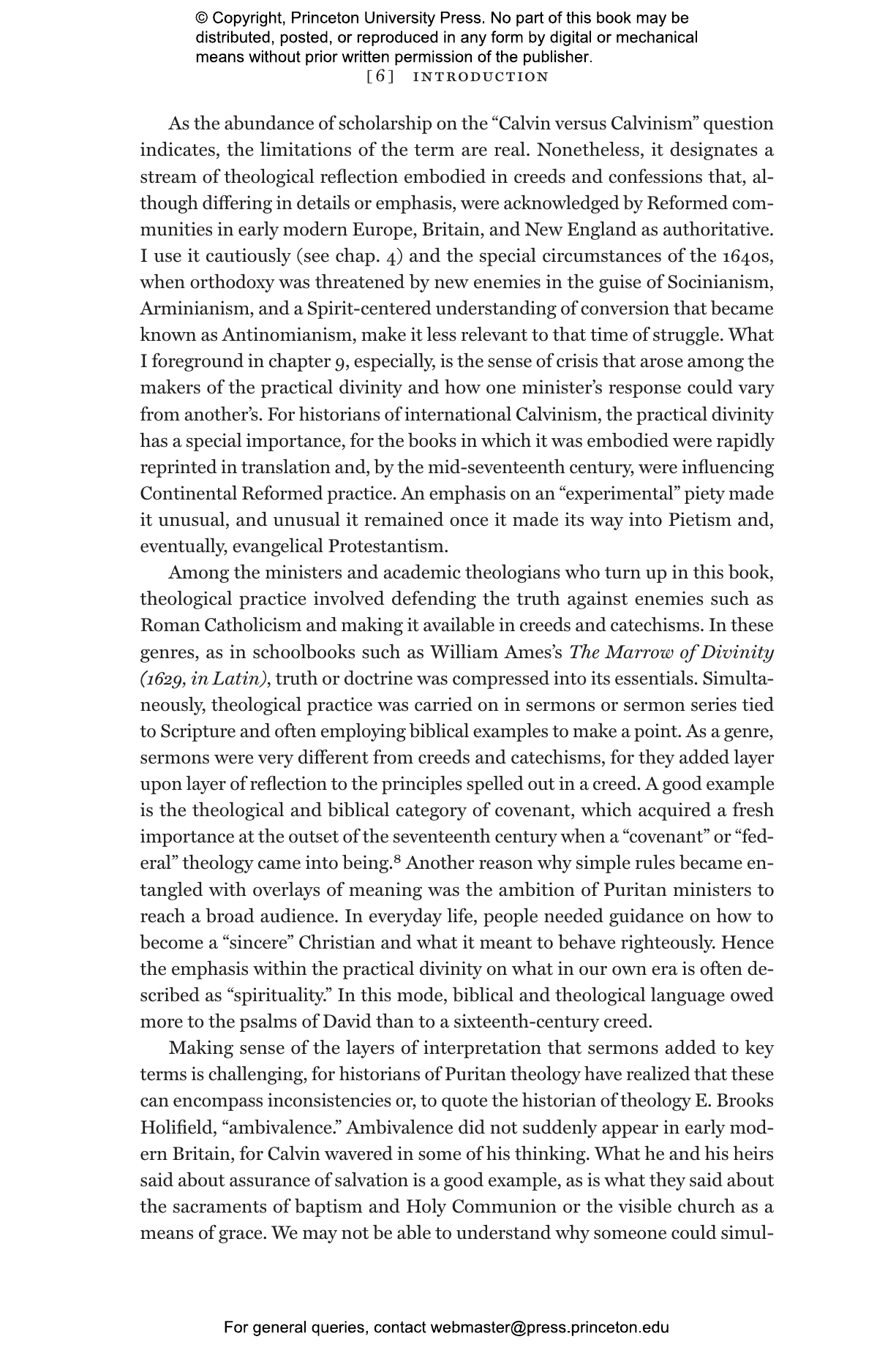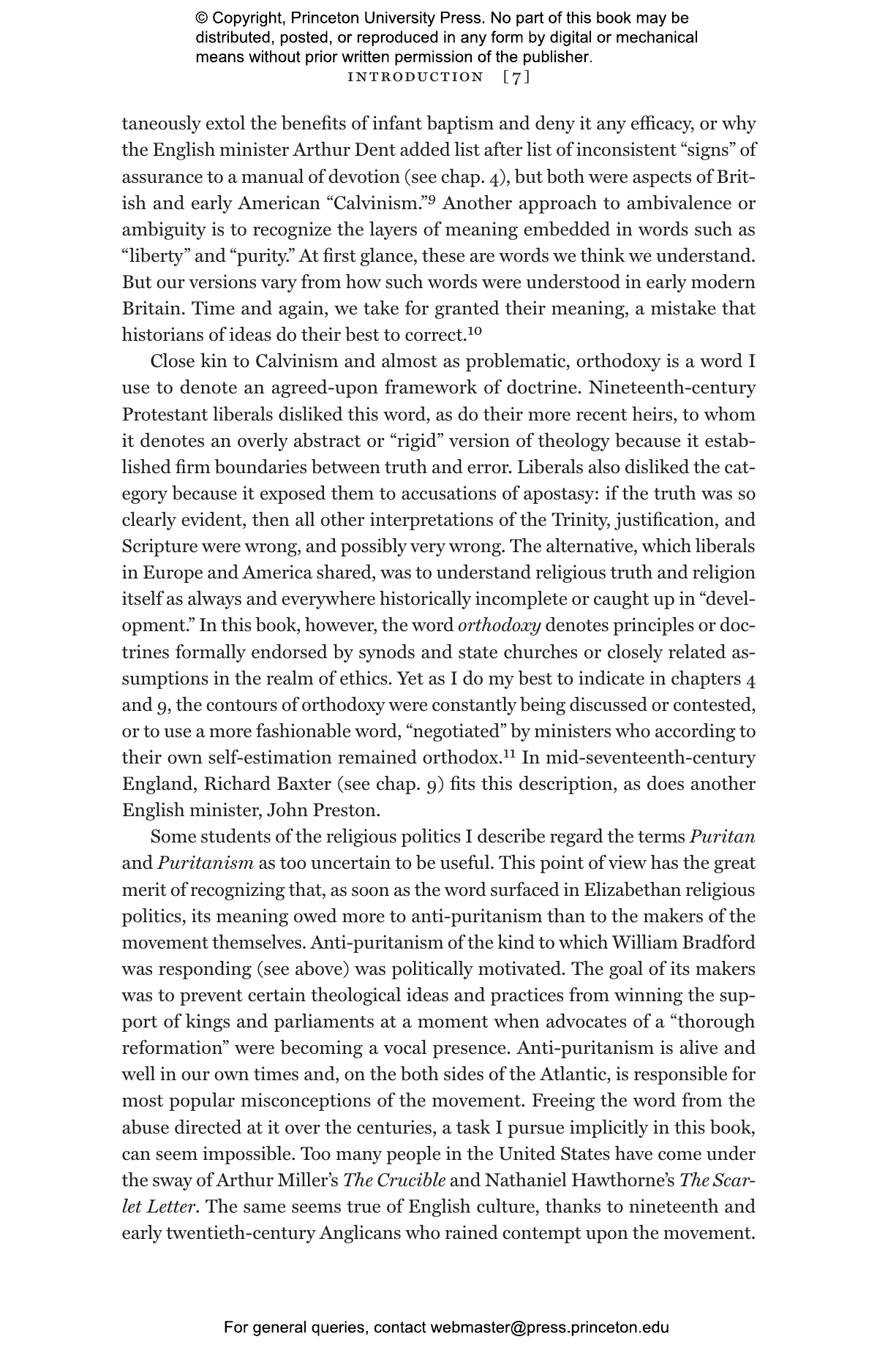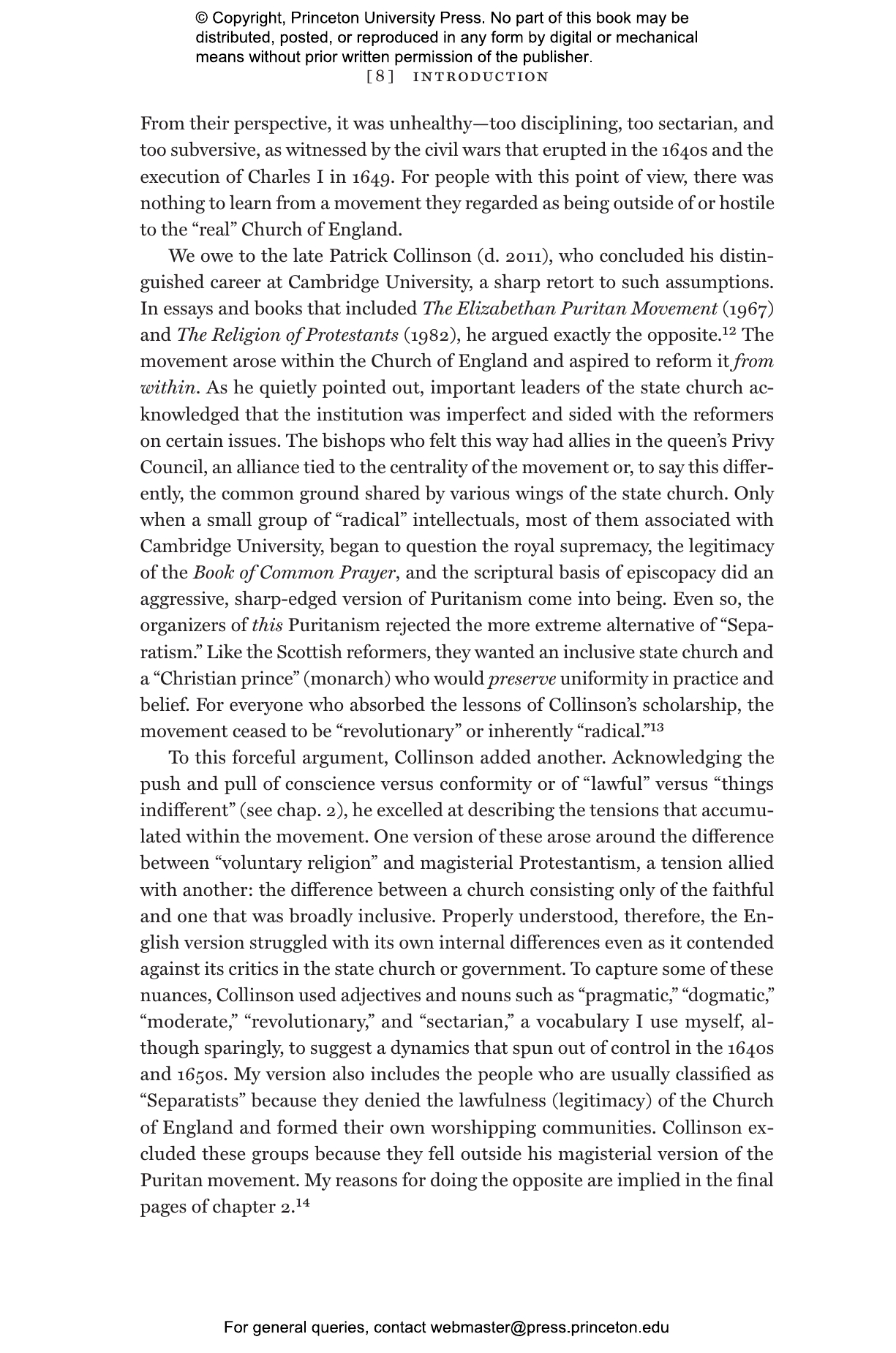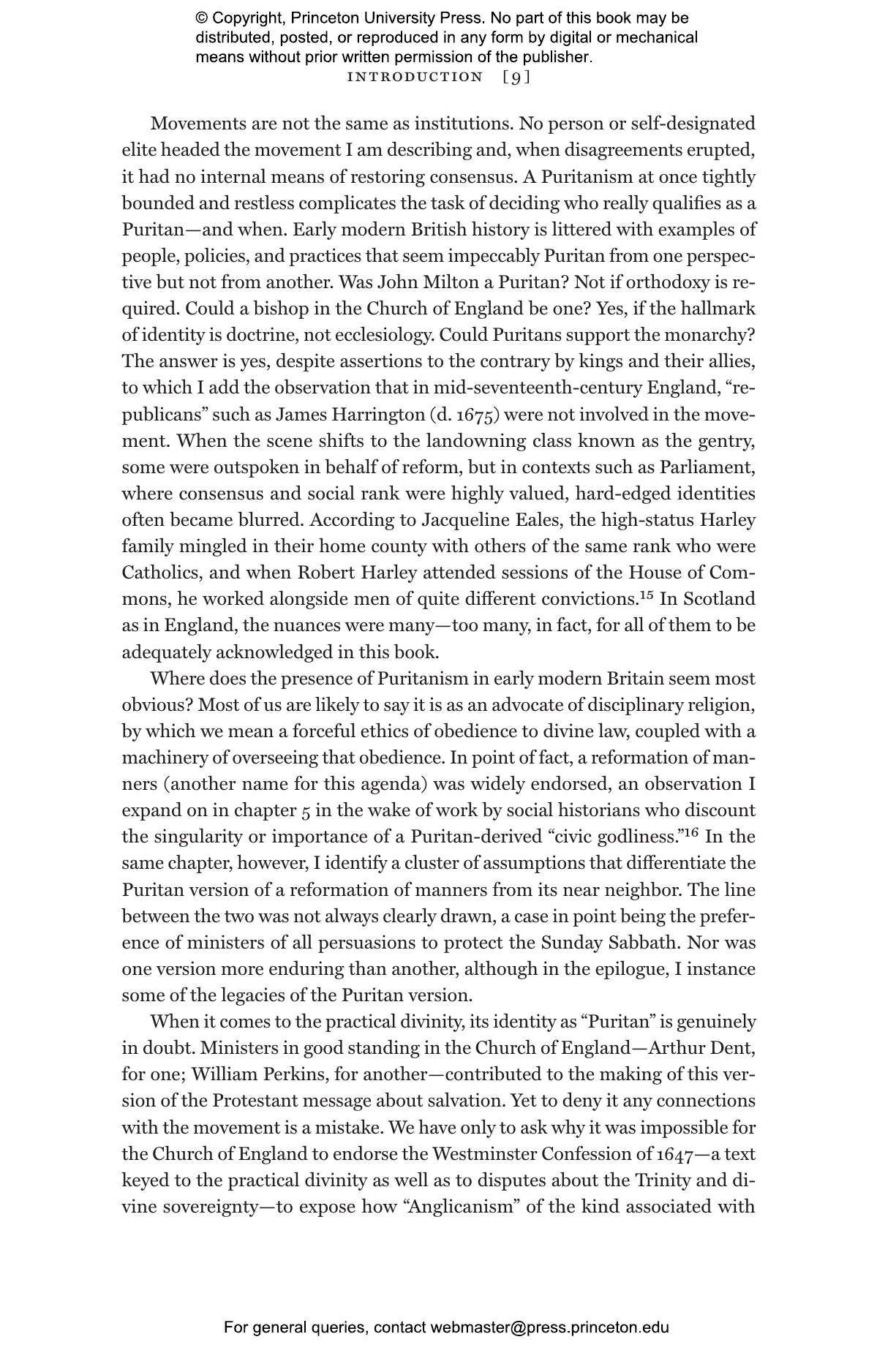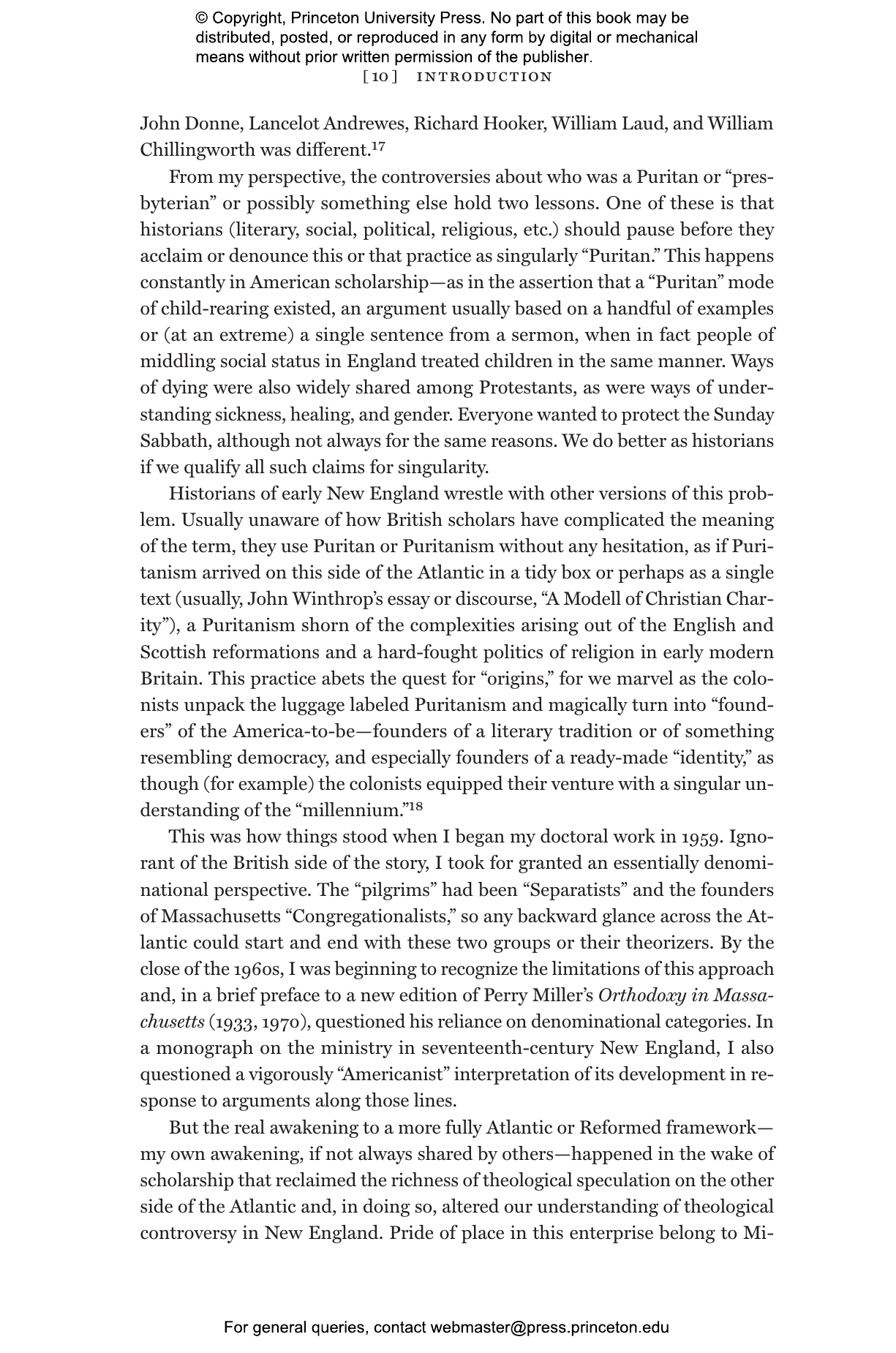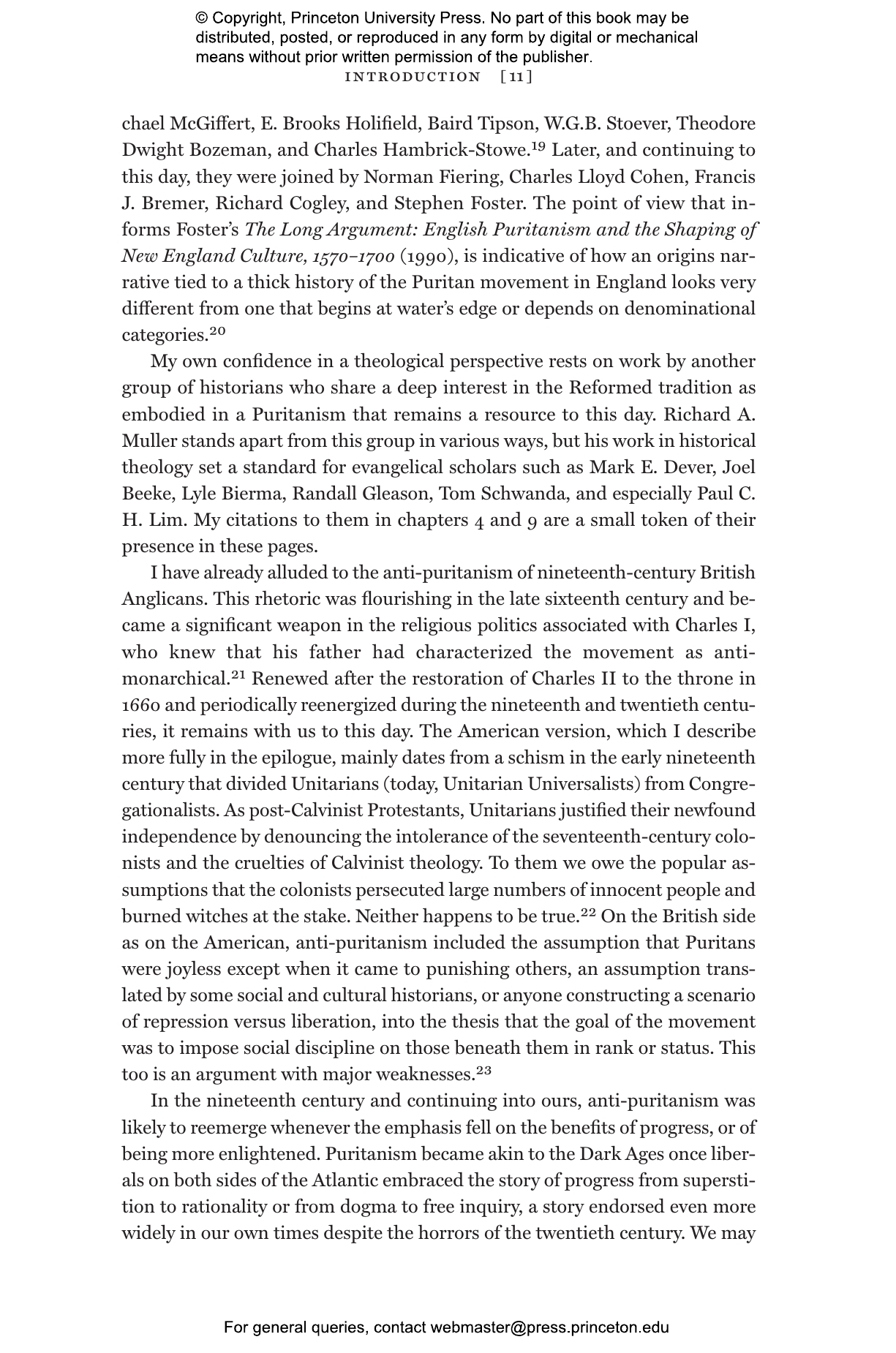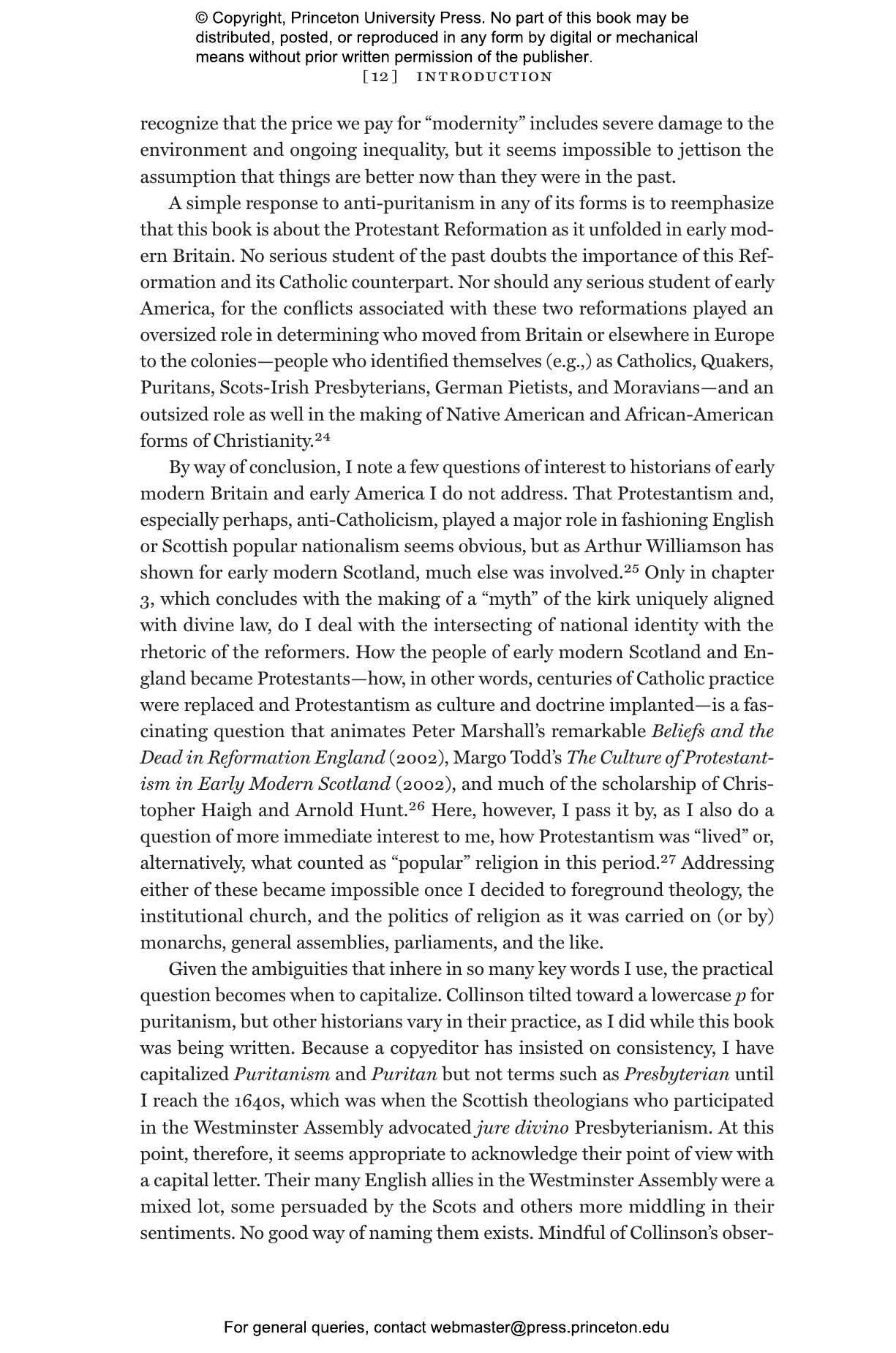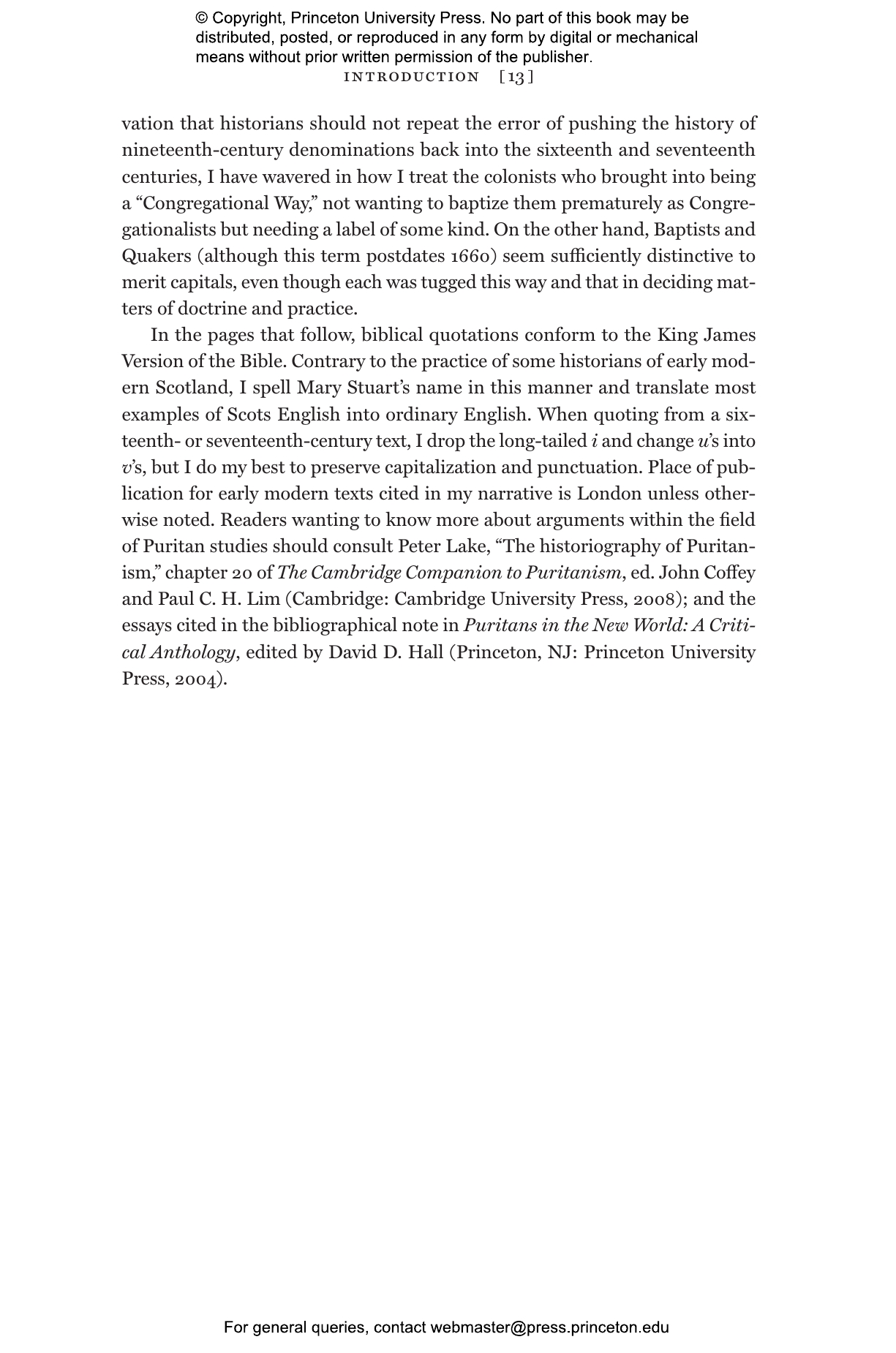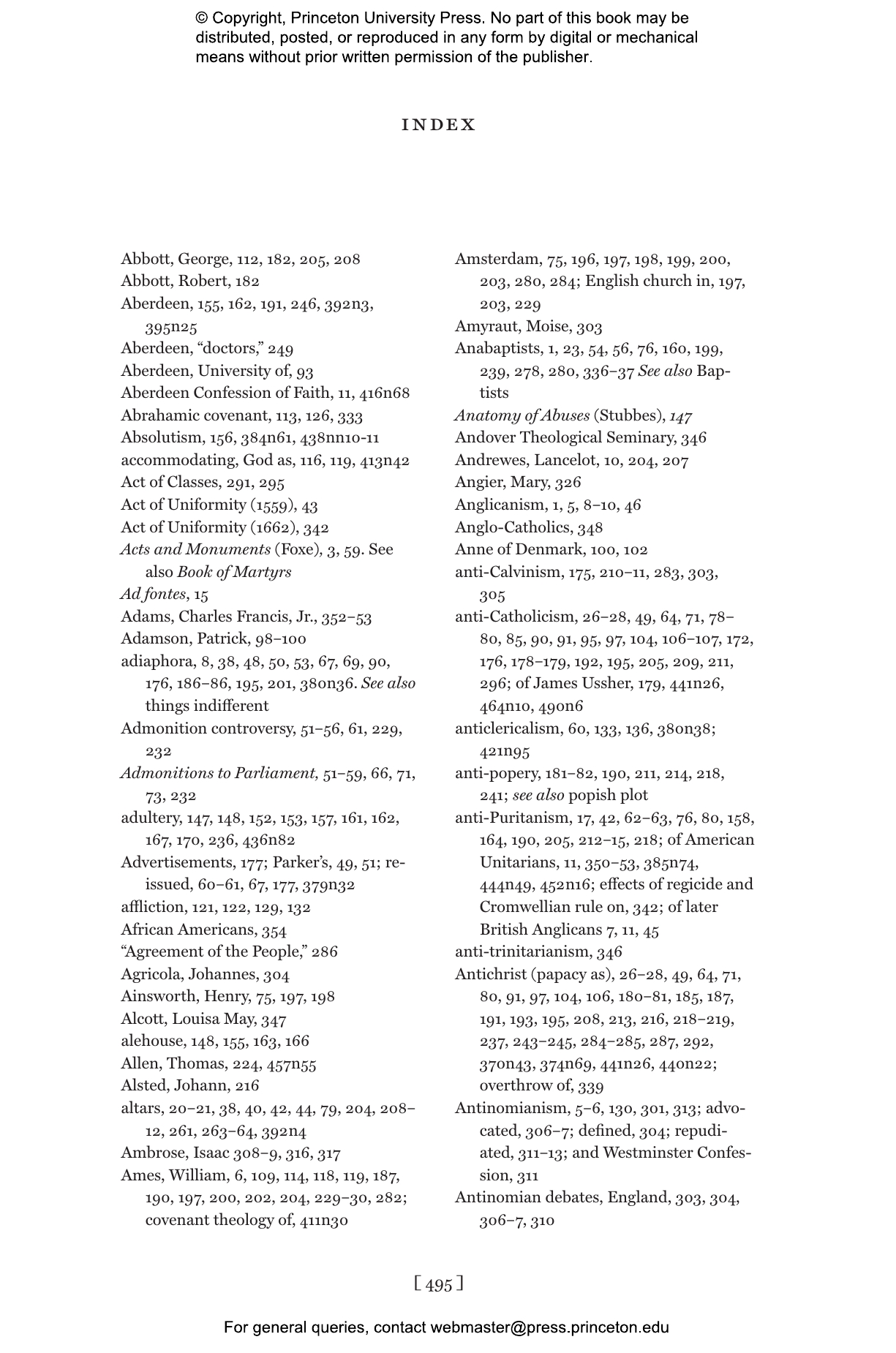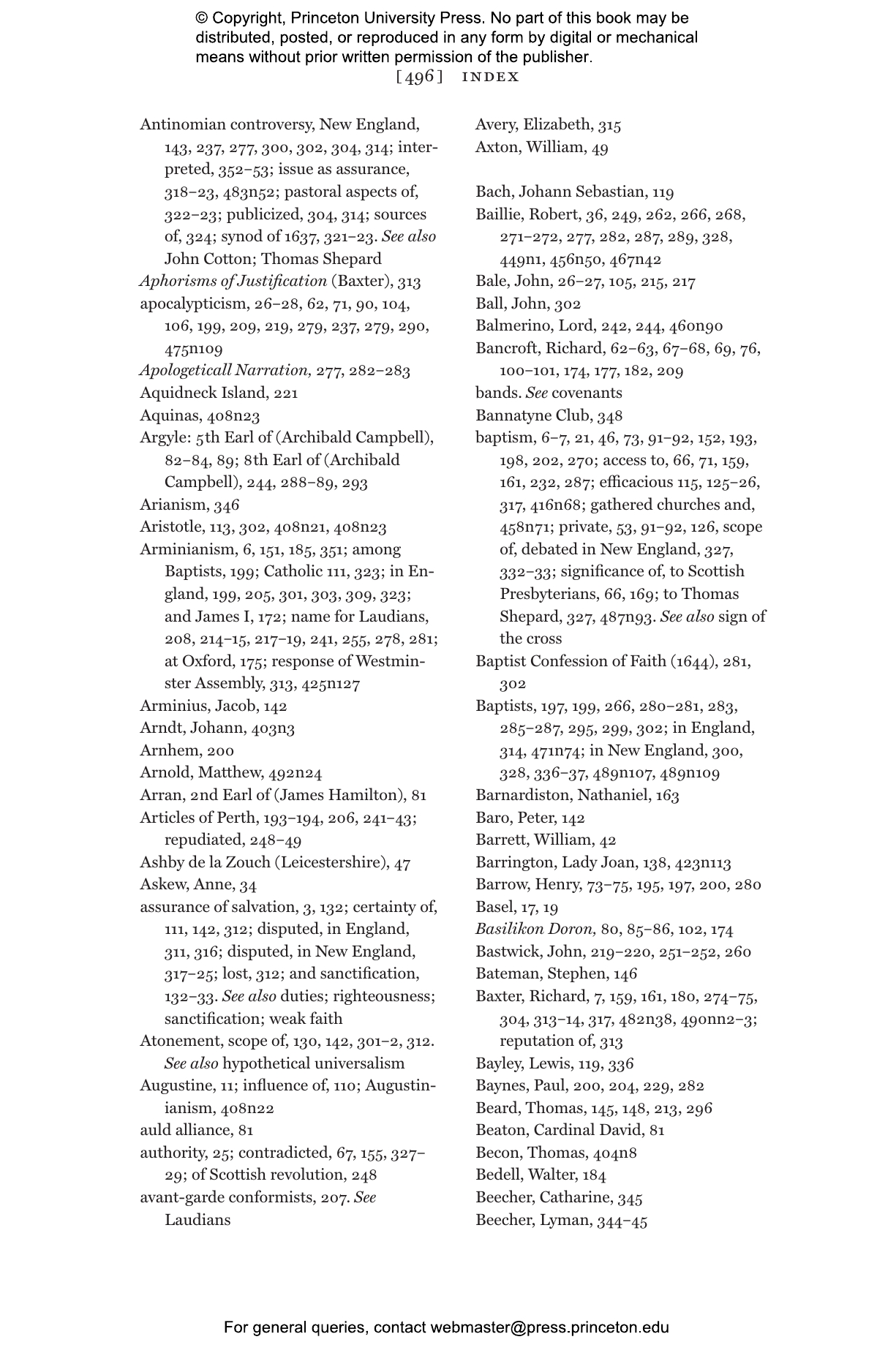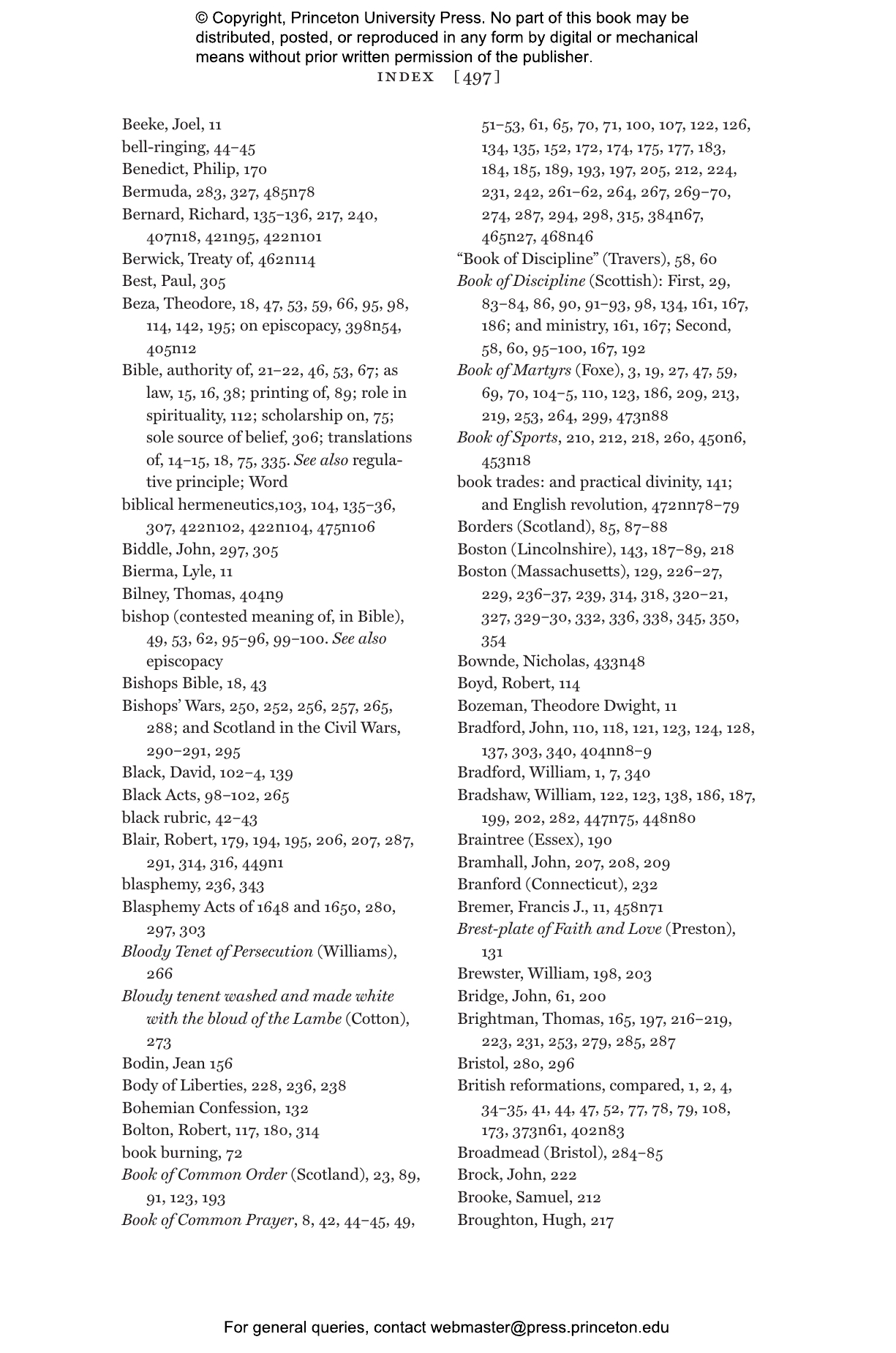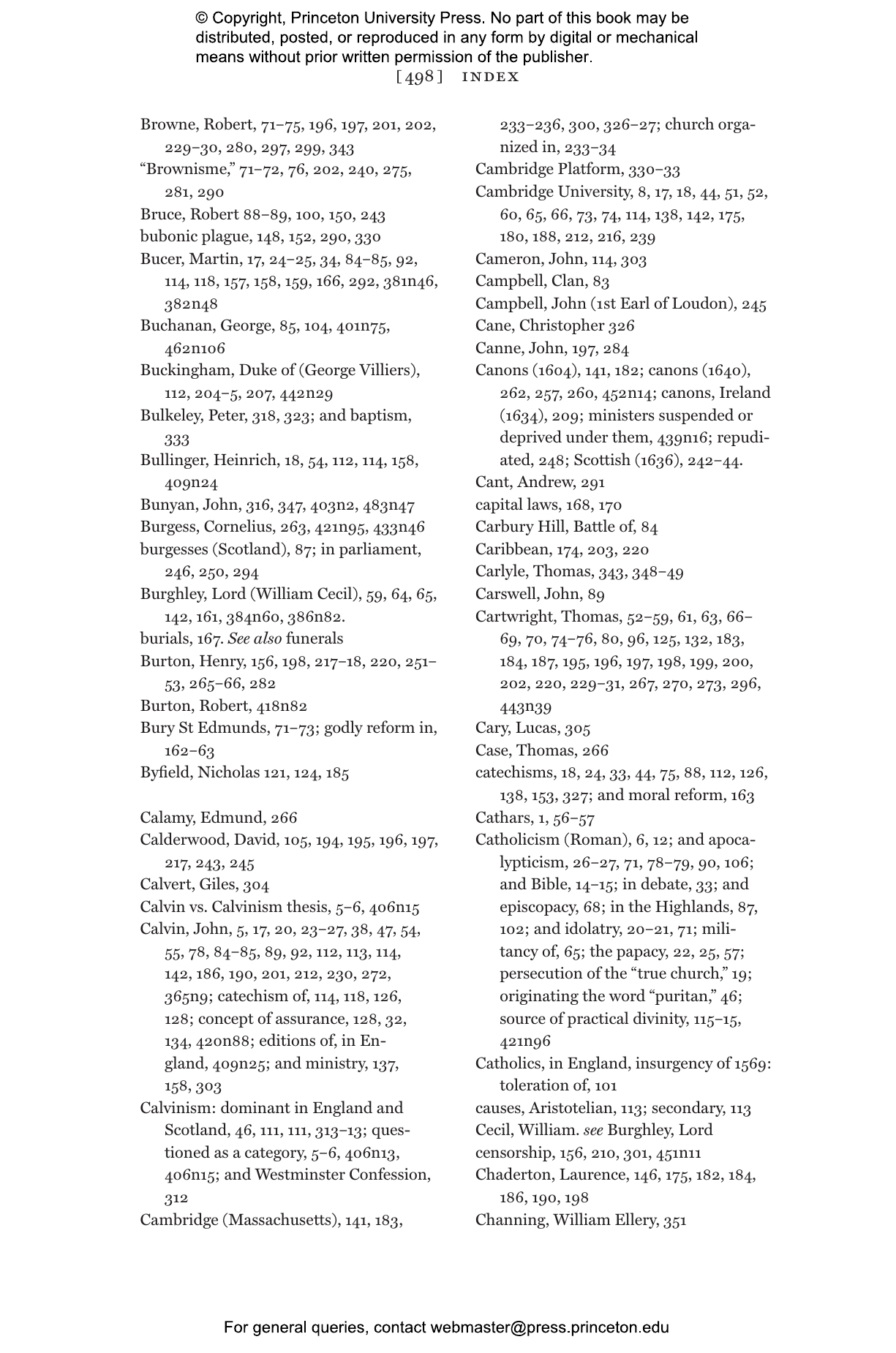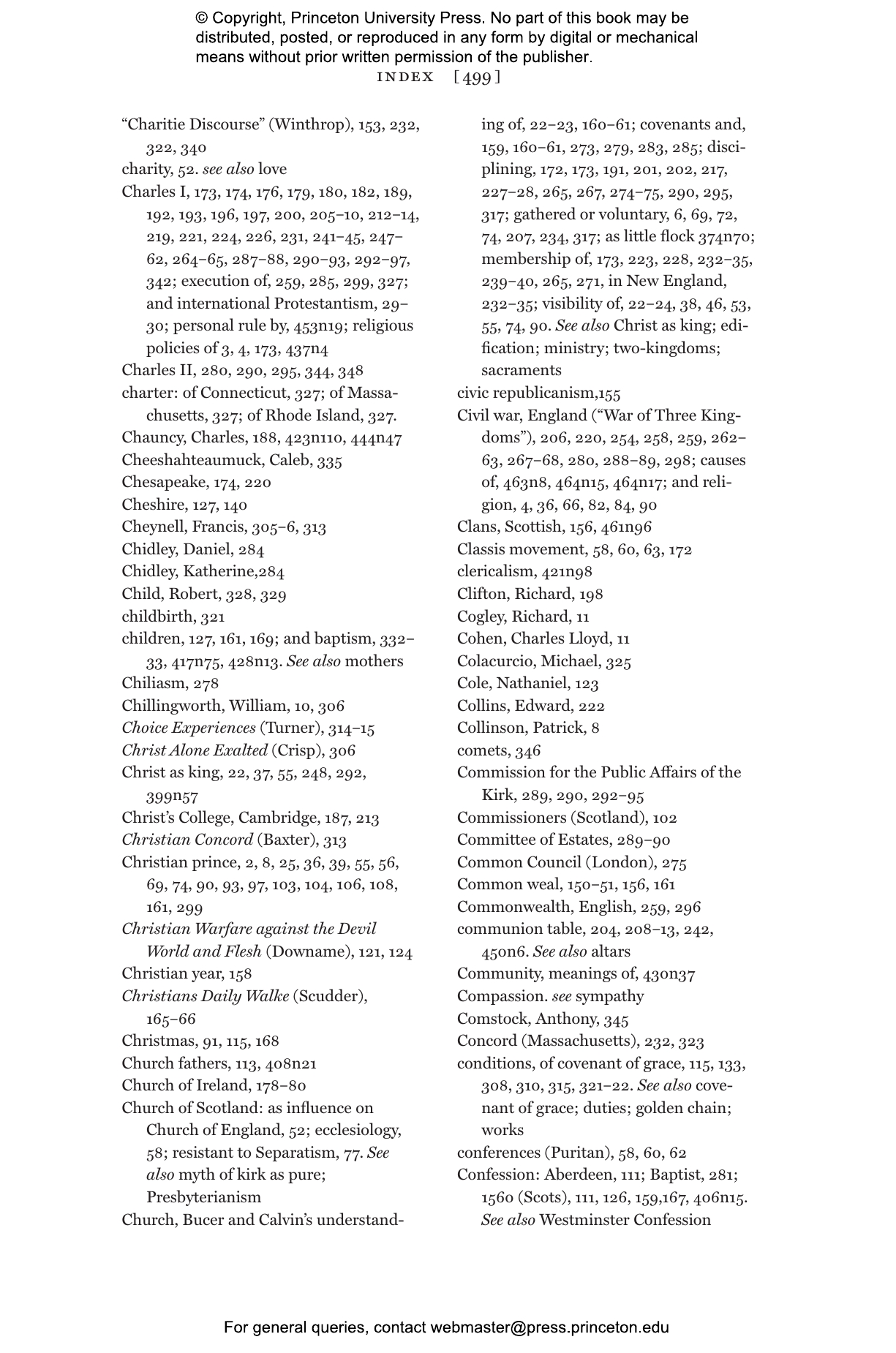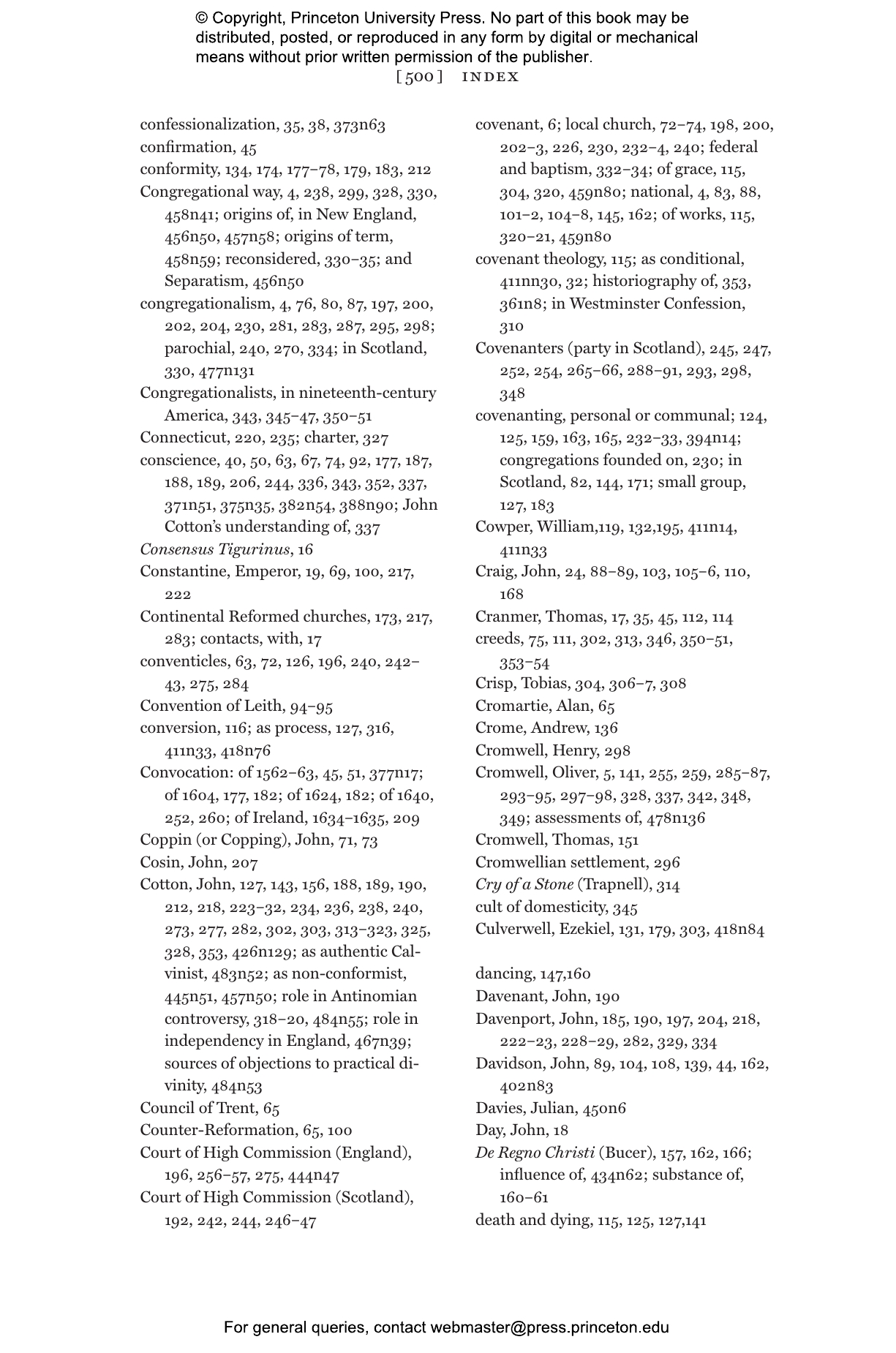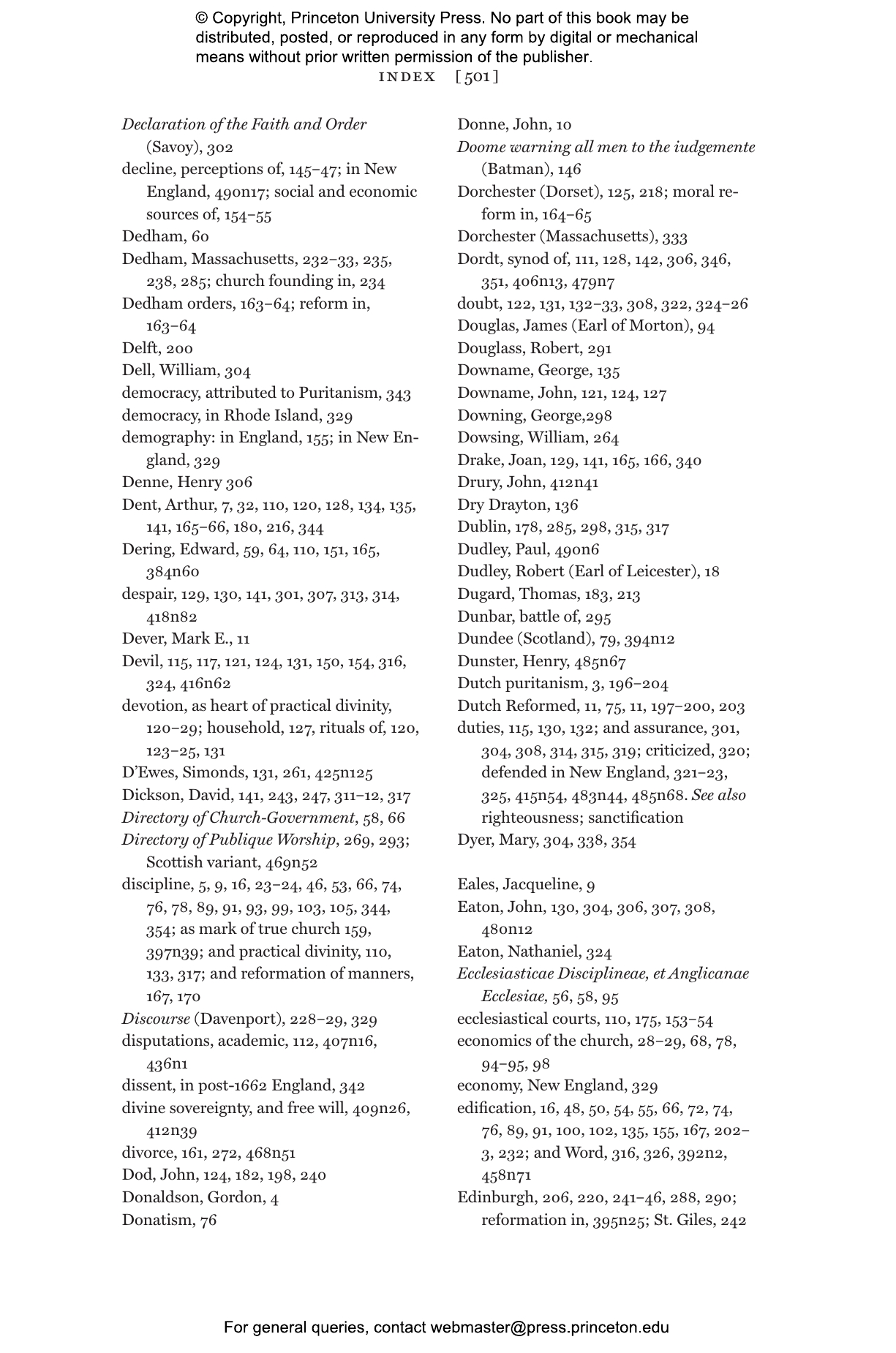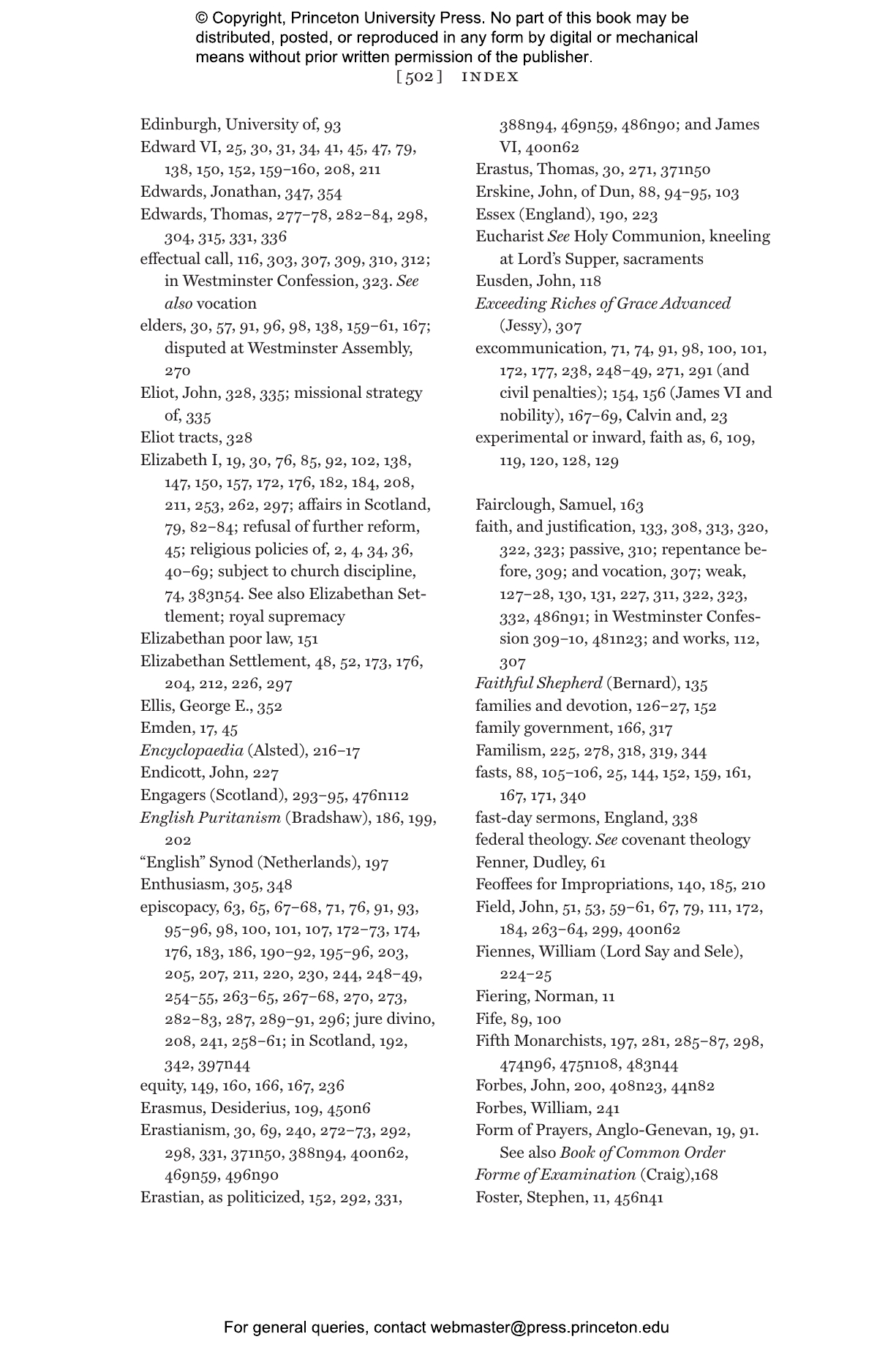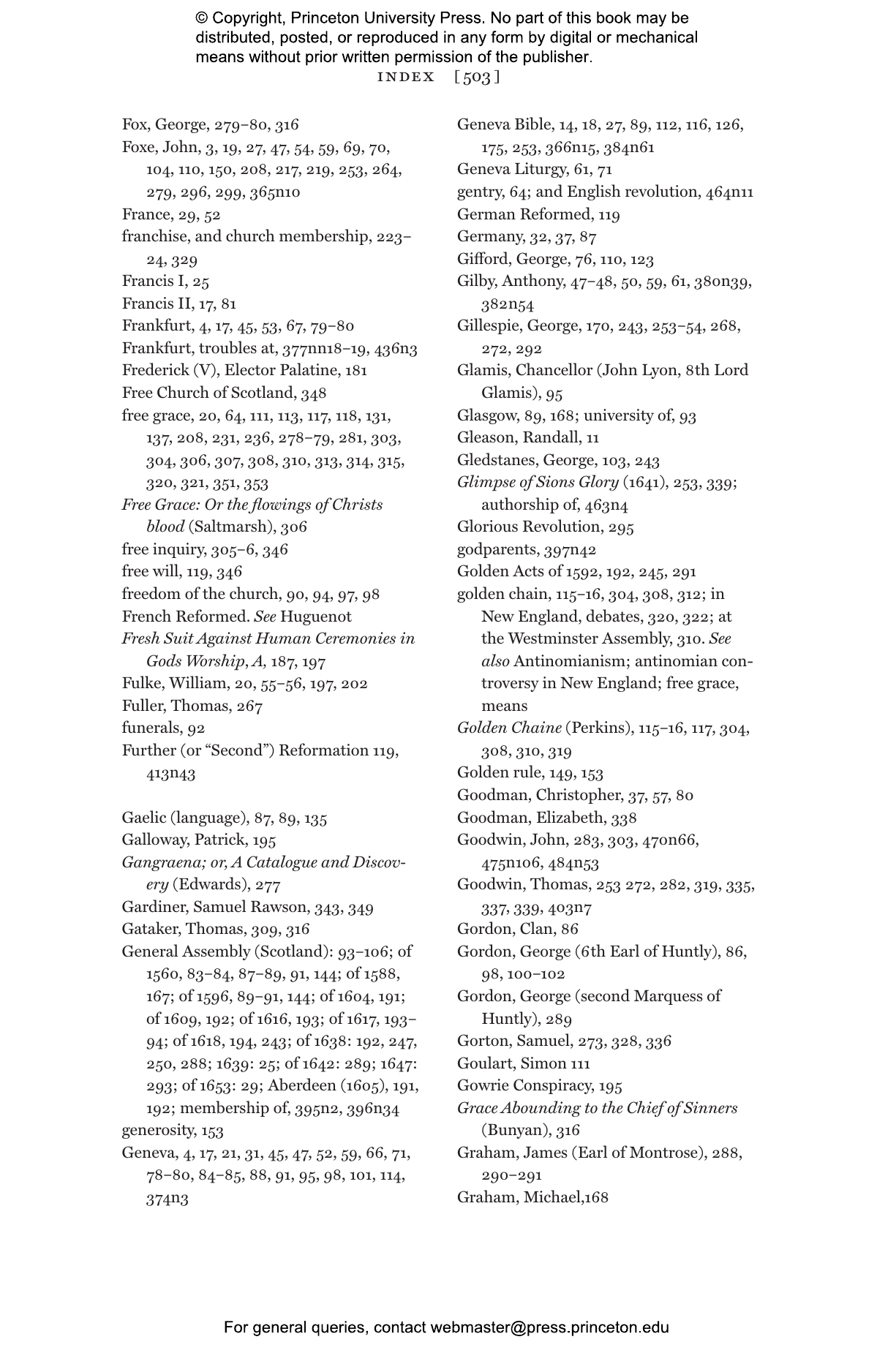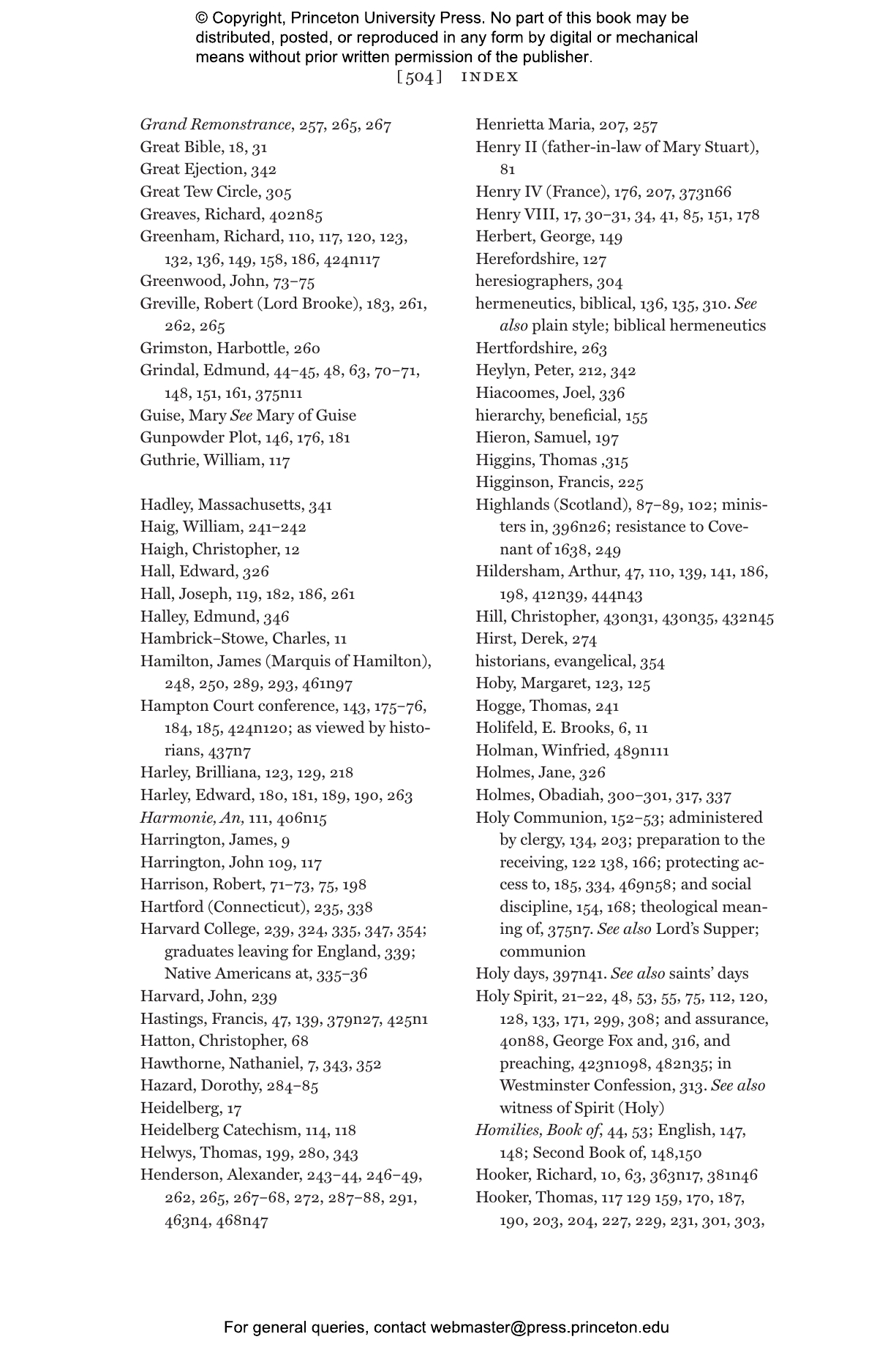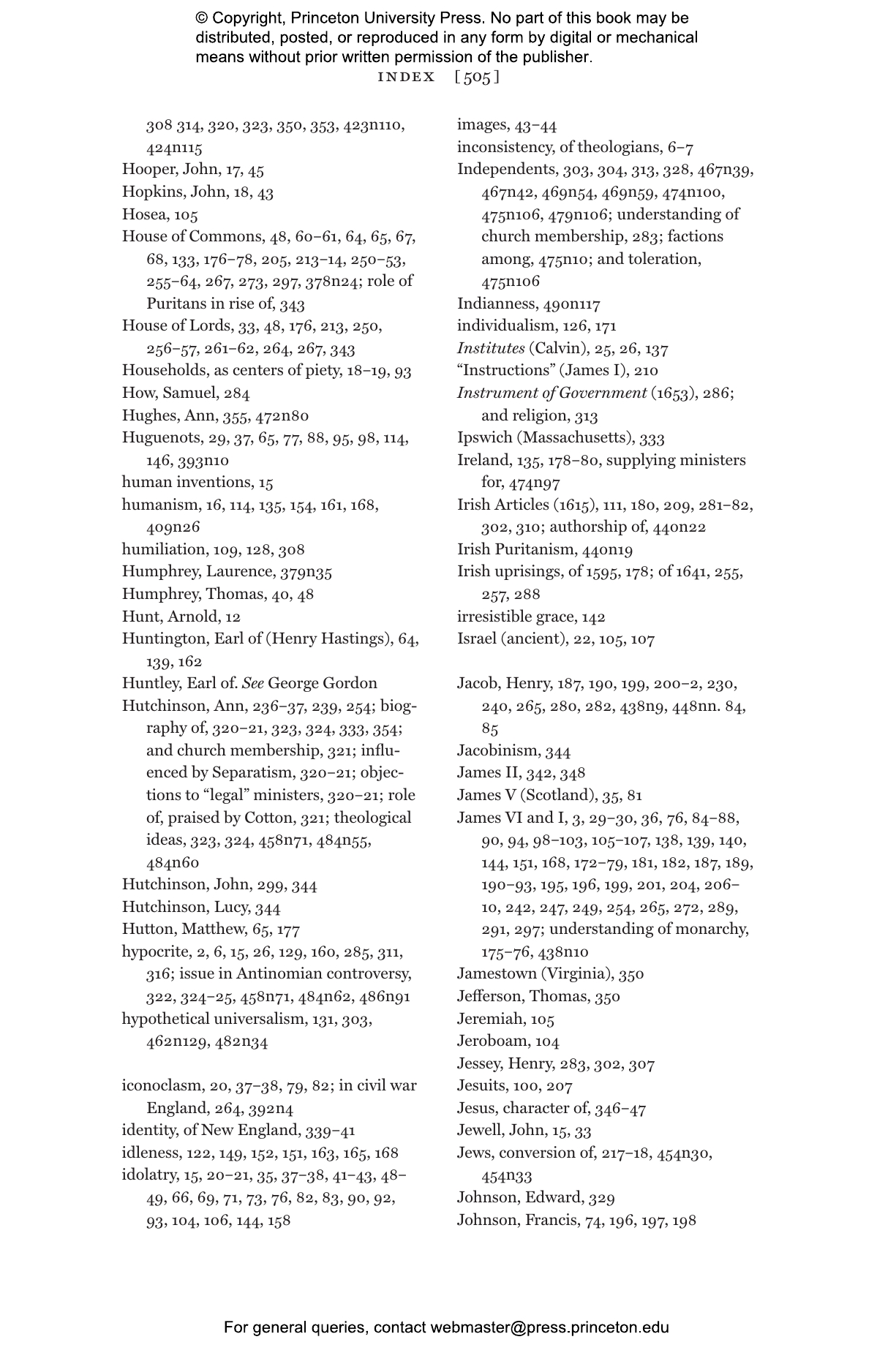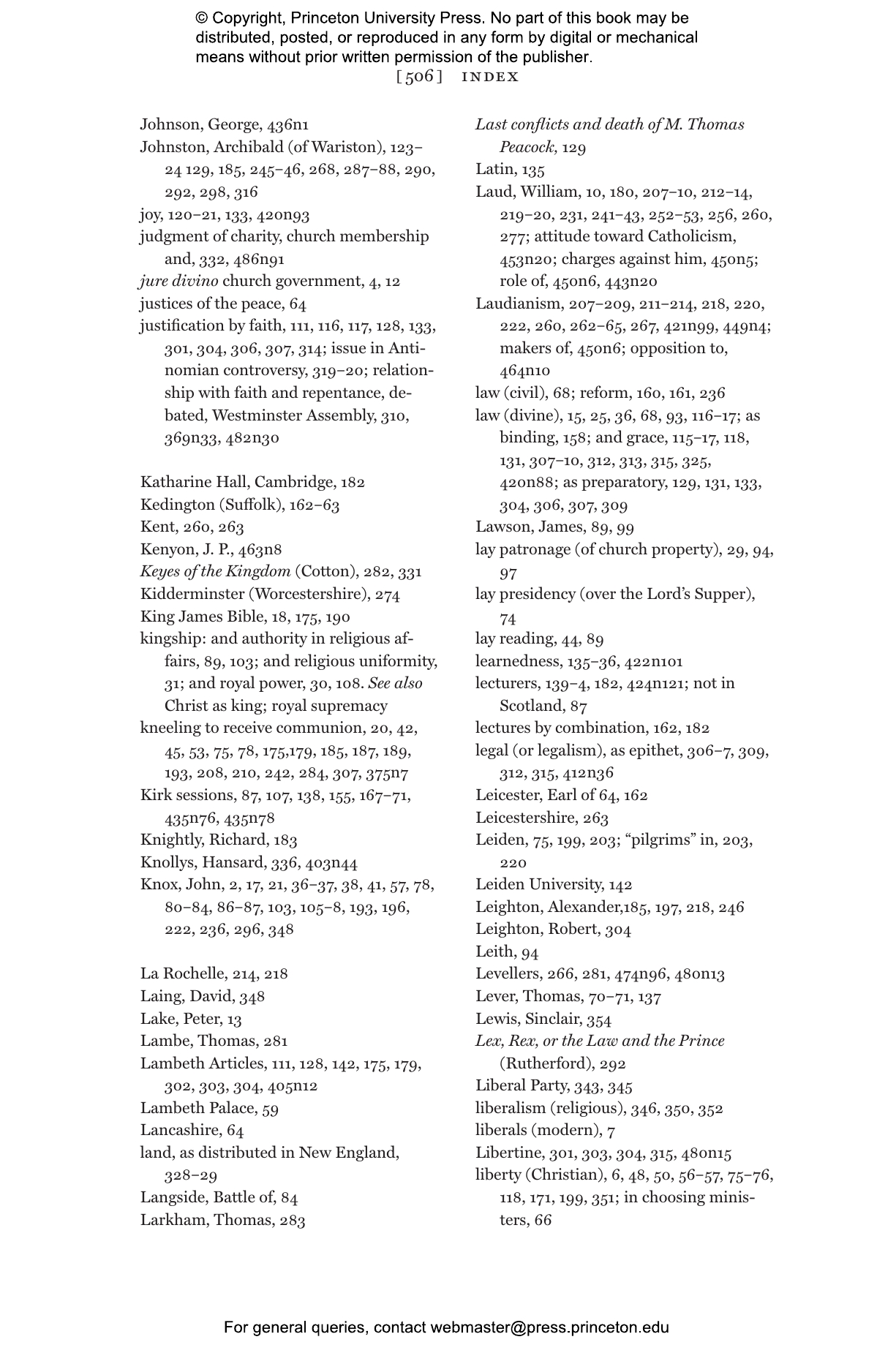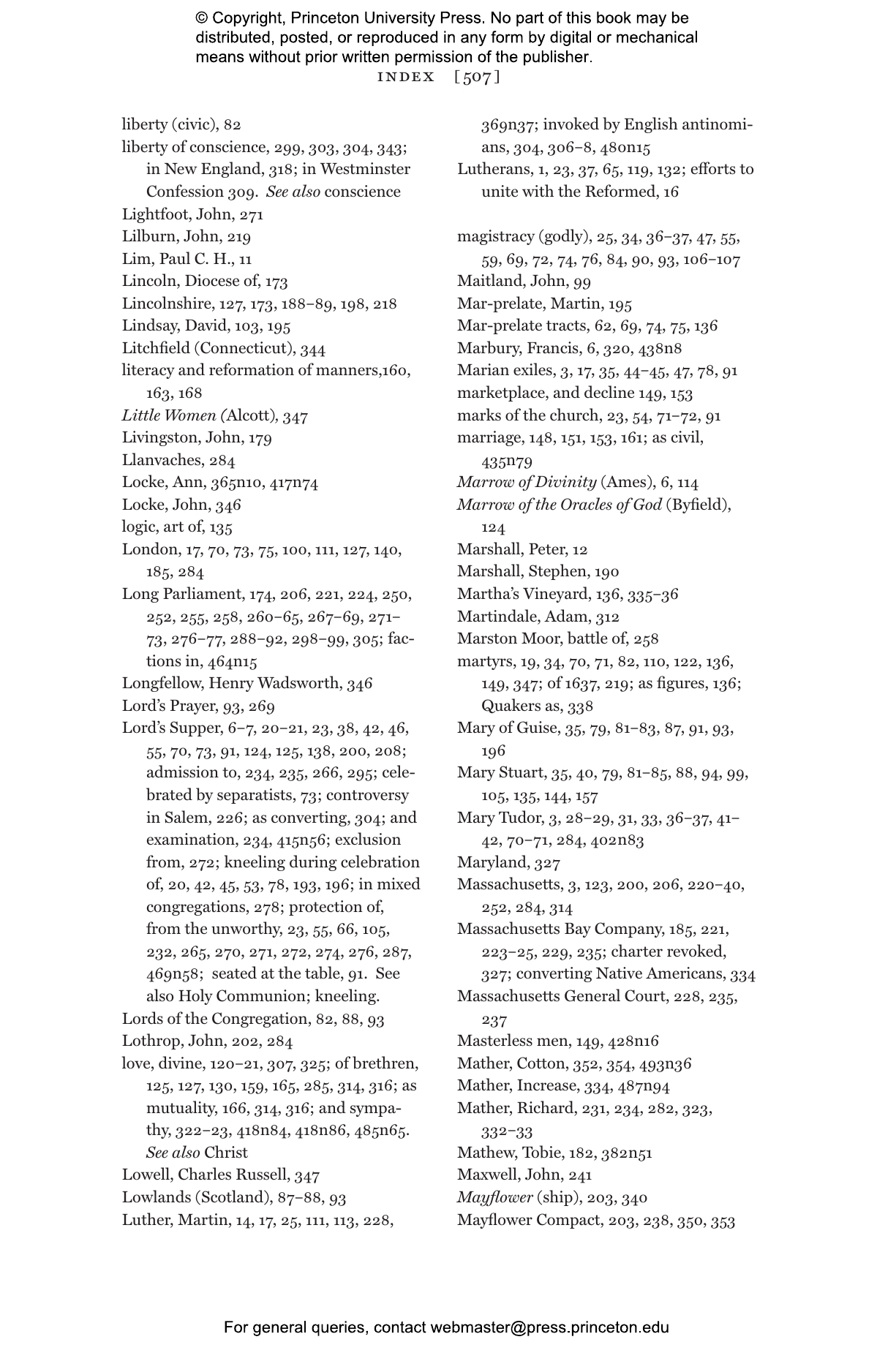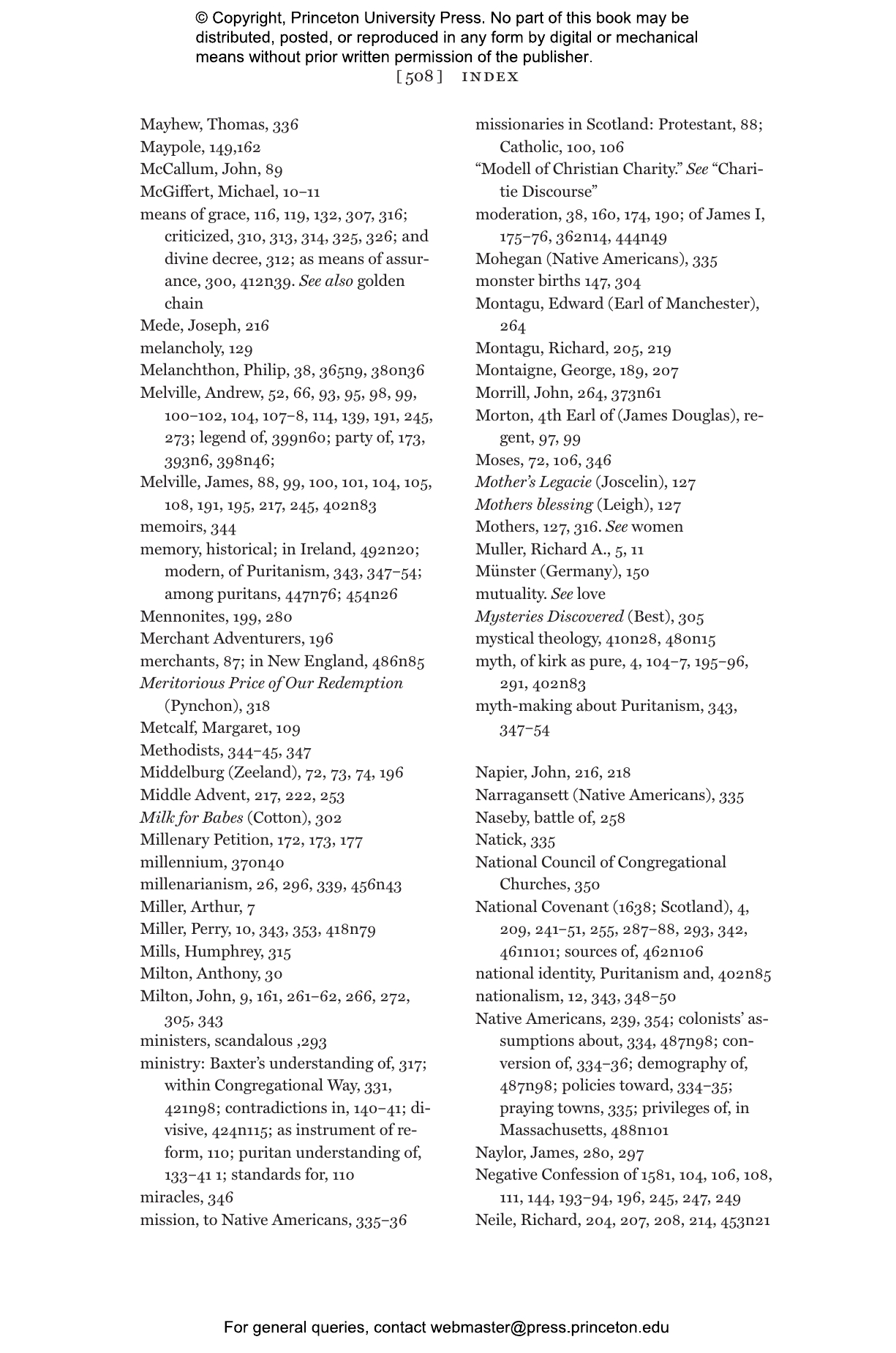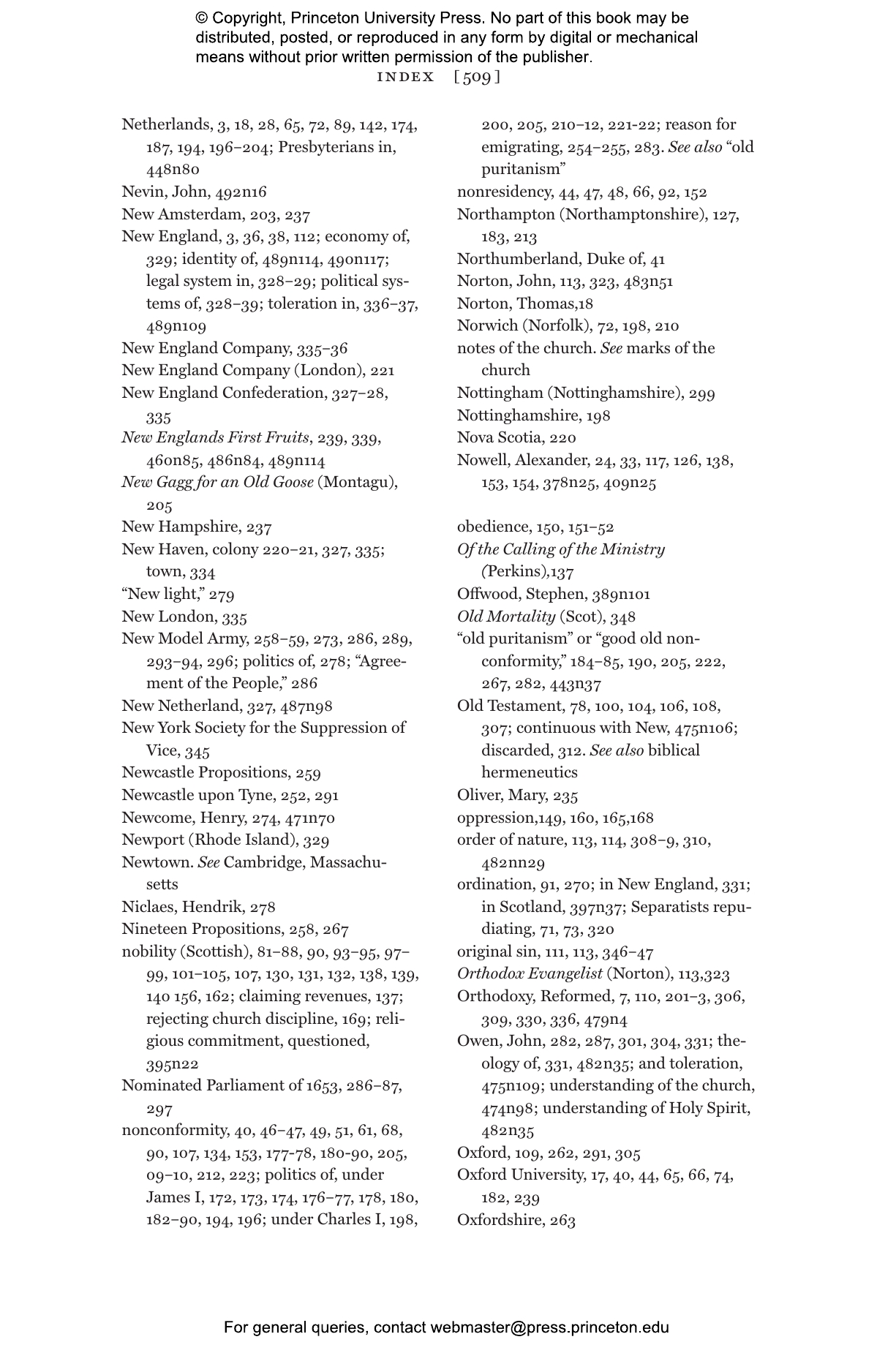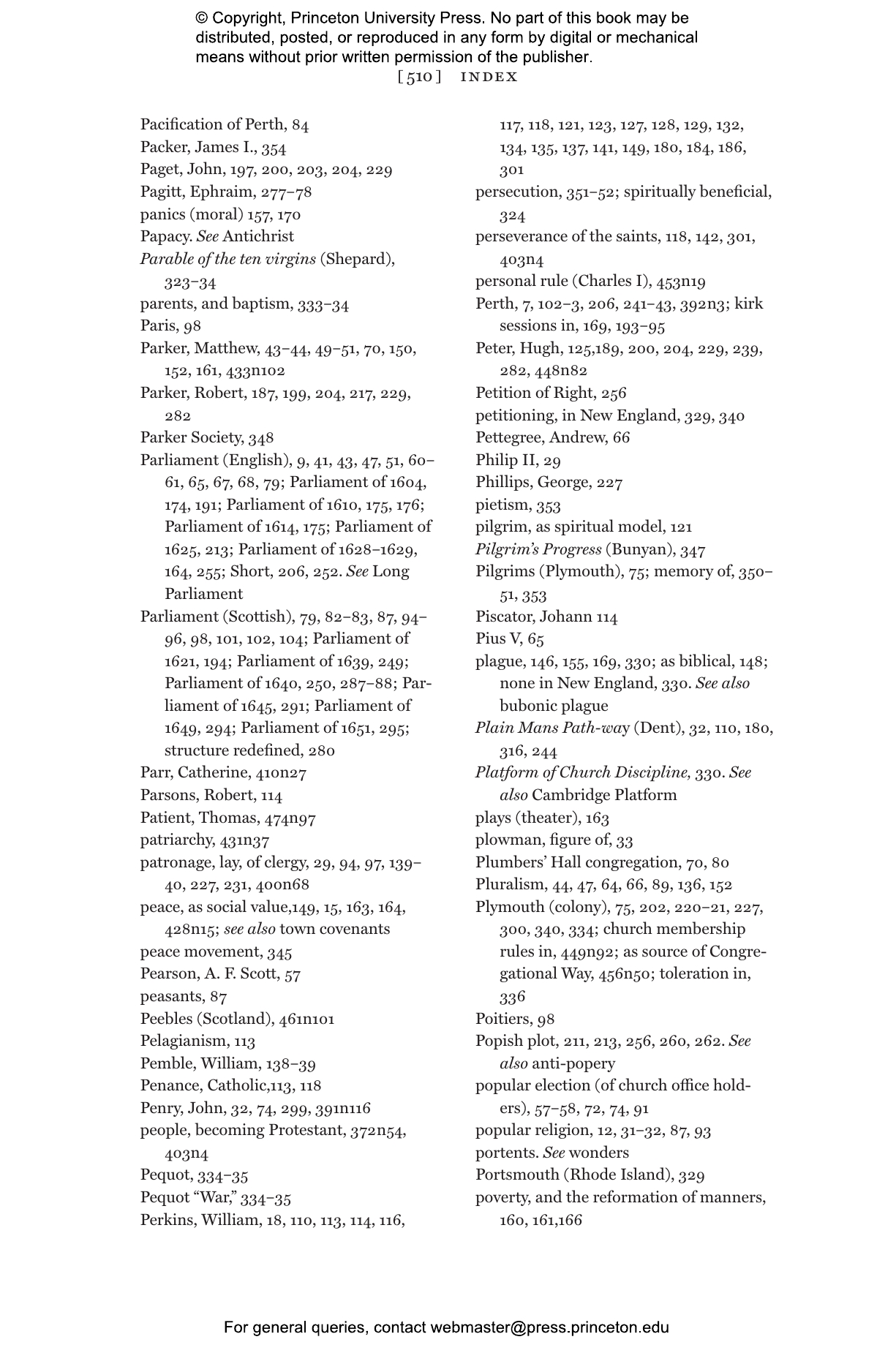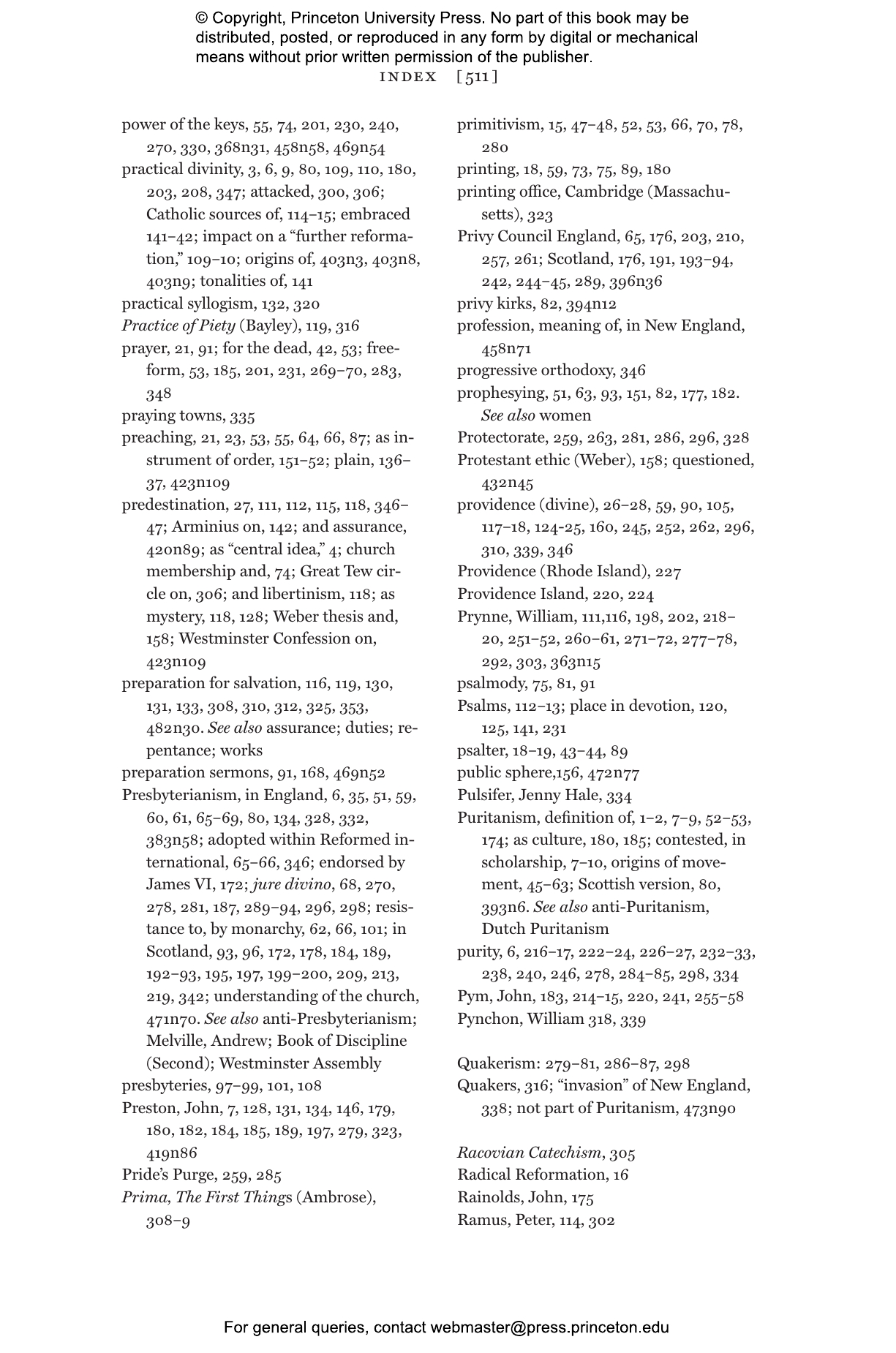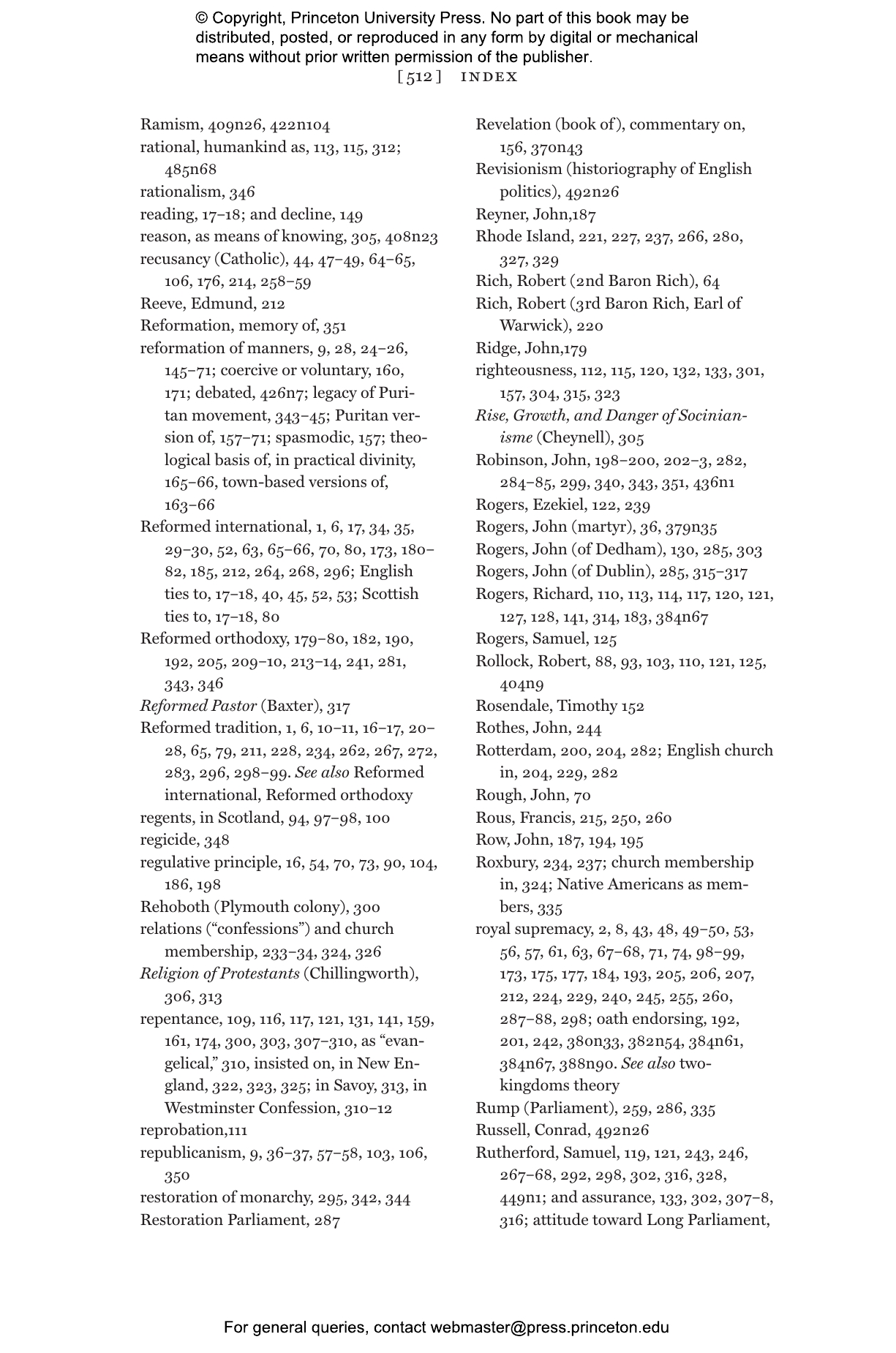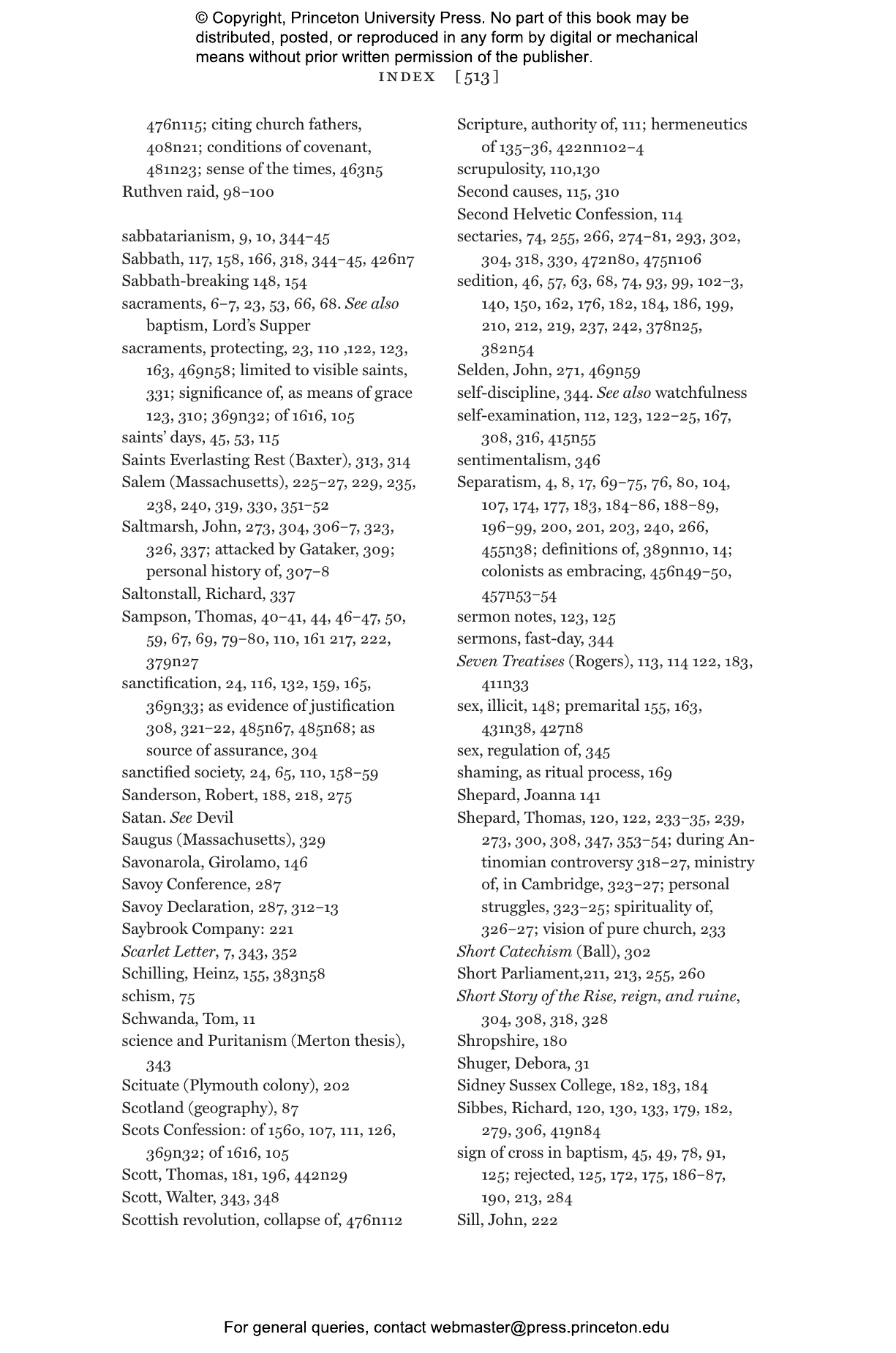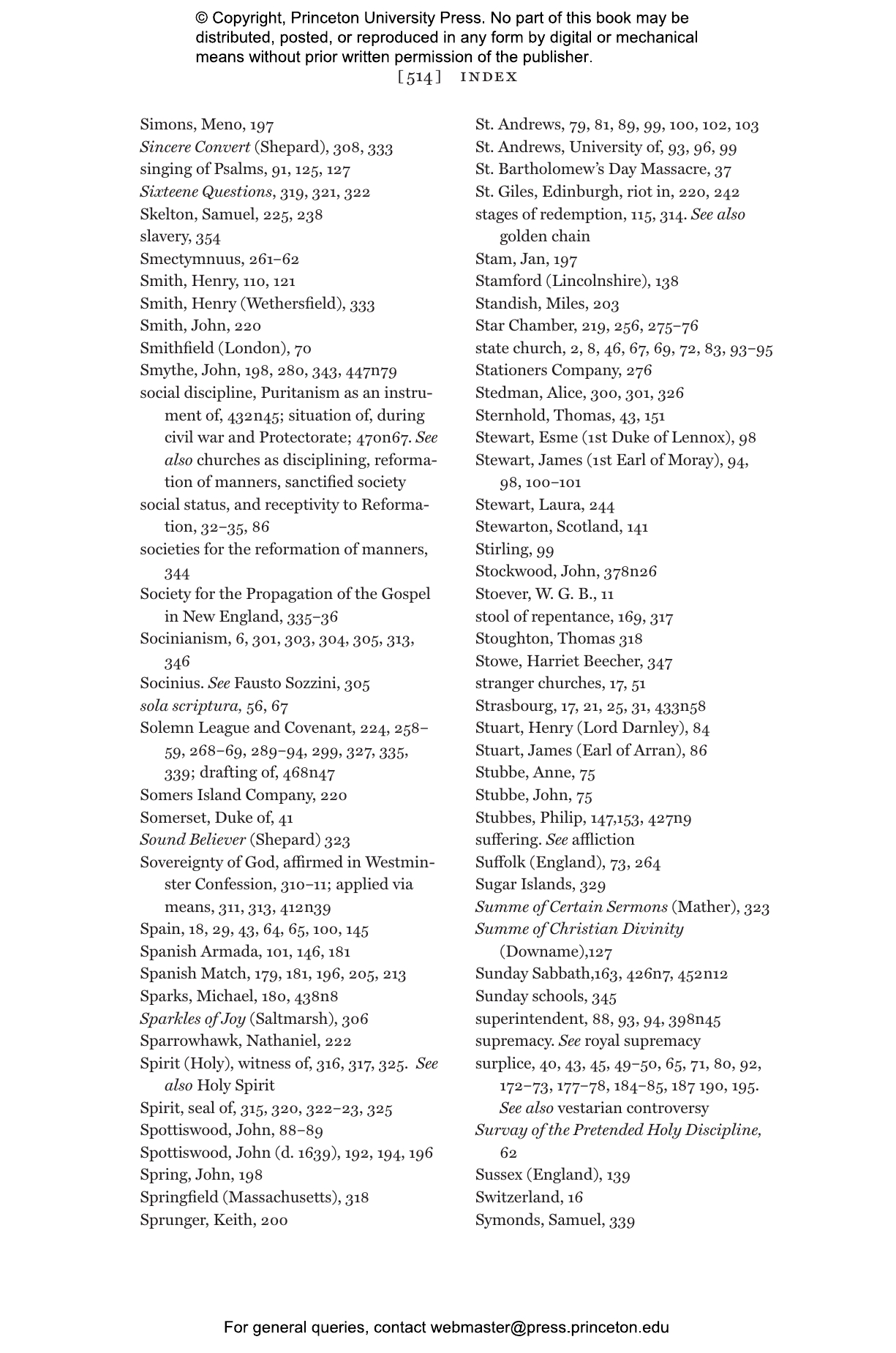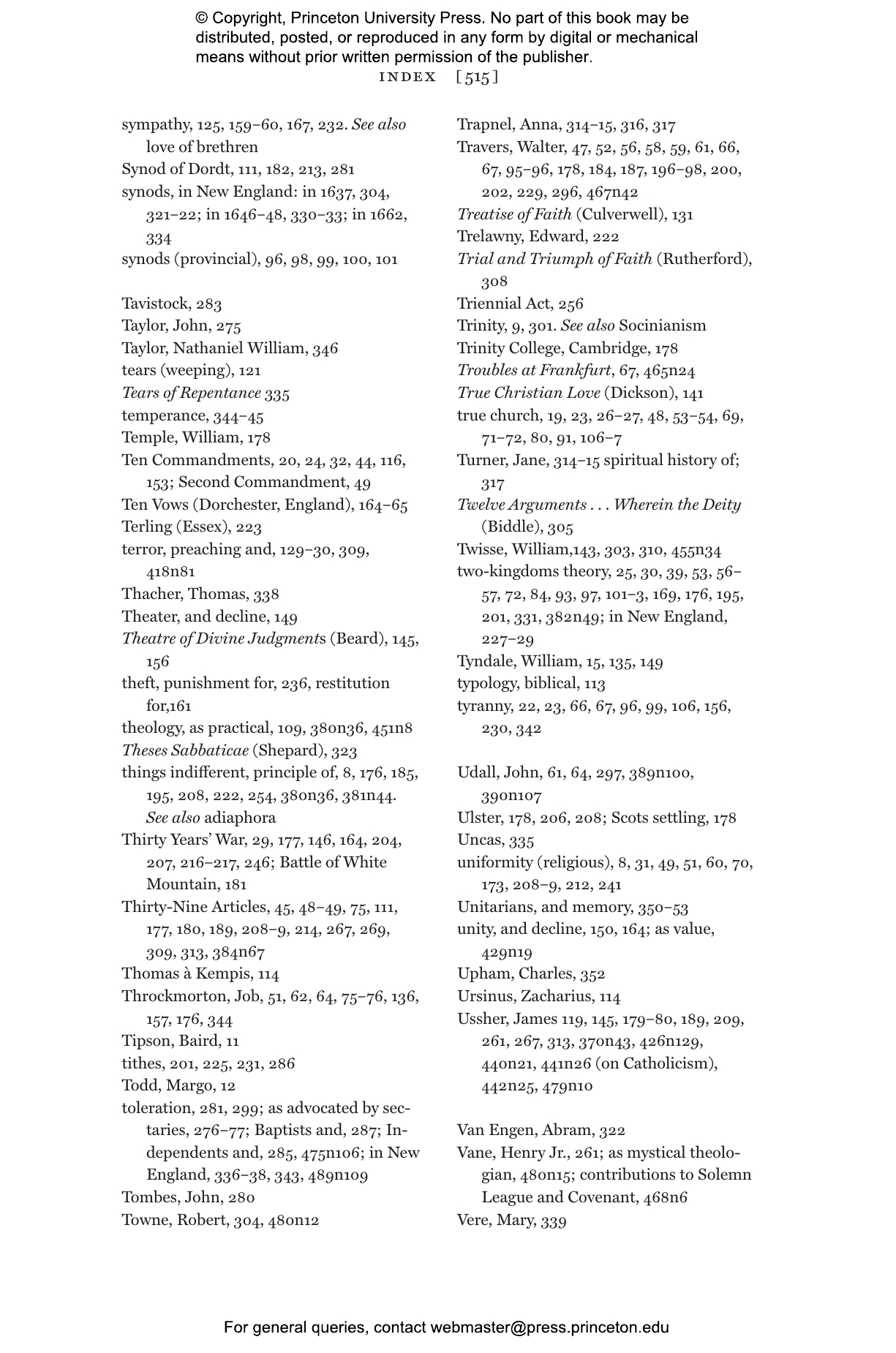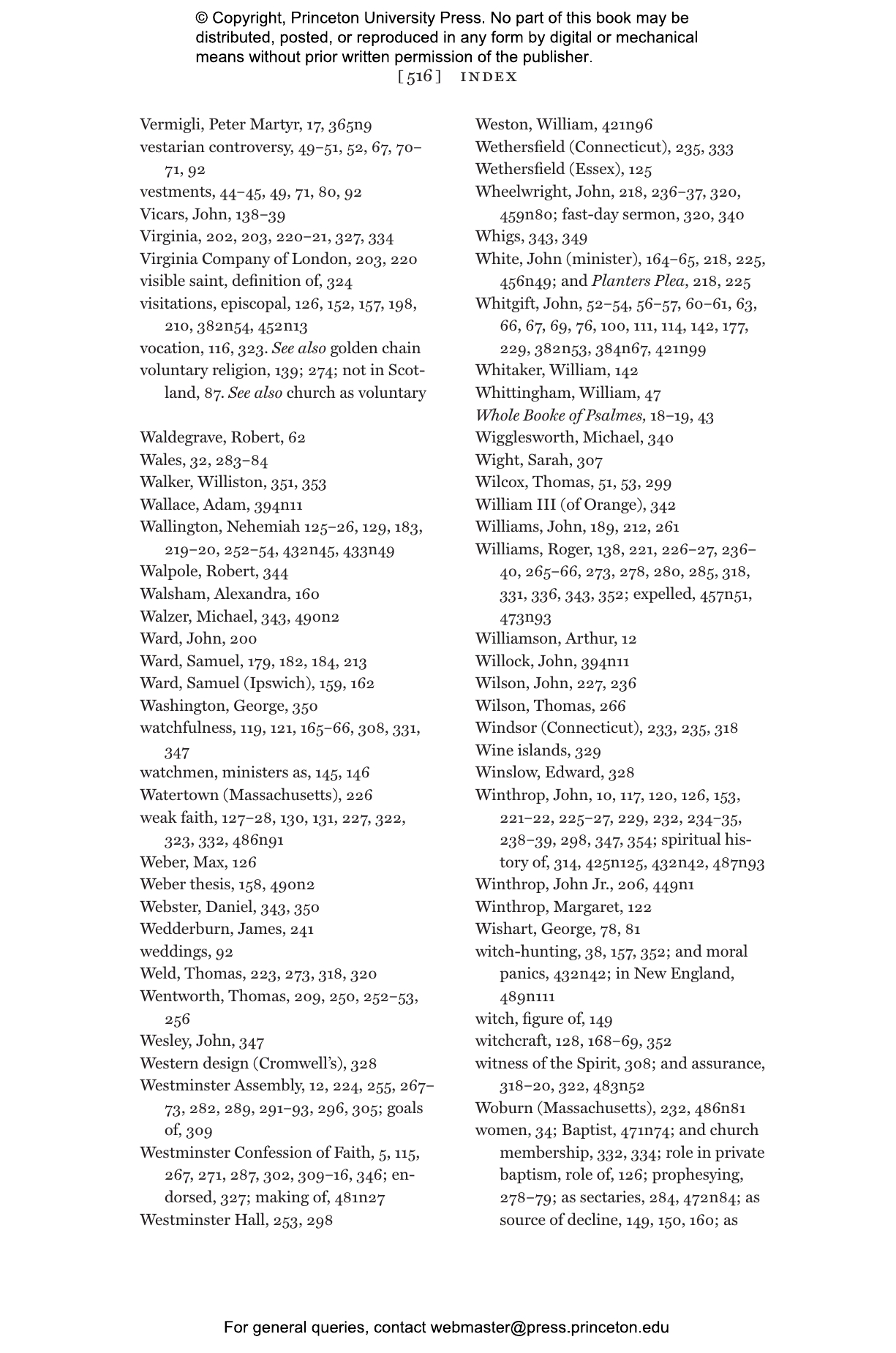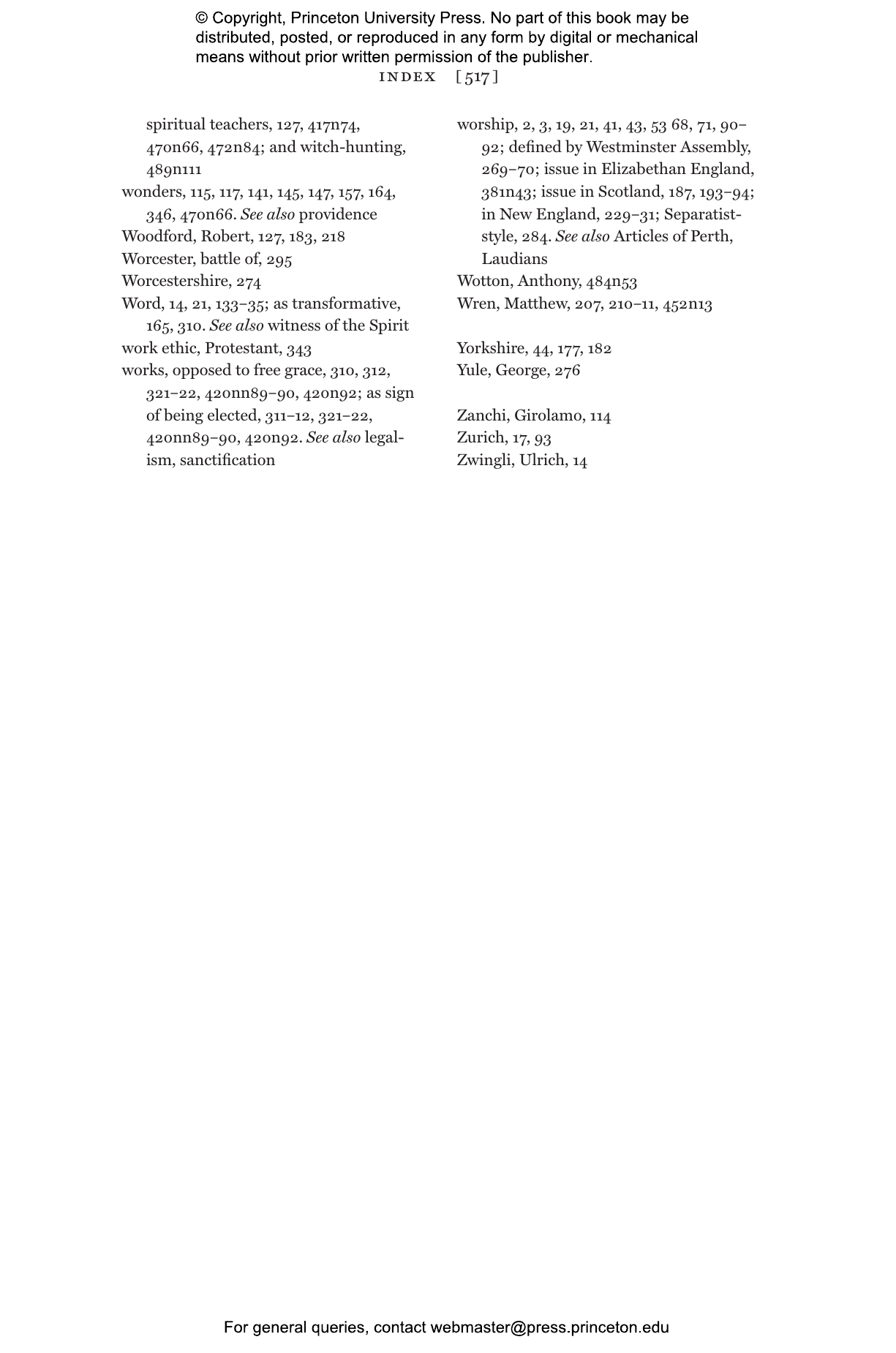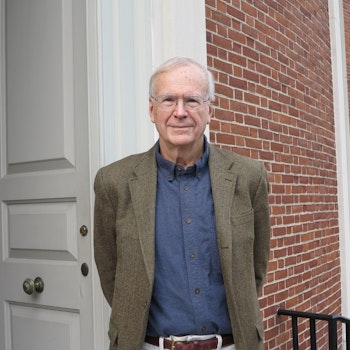This book is a sweeping transatlantic history of Puritanism from its emergence out of the religious tumult of Elizabethan England to its founding role in the story of America. Shedding critical new light on the diverse forms of Puritan belief and practice in England, Scotland, and New England, David Hall provides a multifaceted account of a cultural movement that judged the Protestant reforms of Elizabeth’s reign to be unfinished. Hall’s vivid and wide-ranging narrative describes the movement’s deeply ambiguous triumph under Oliver Cromwell, its political demise with the Restoration of the English monarchy in 1660, and its perilous migration across the Atlantic to establish a “perfect reformation” in the New World.
A breathtaking work of scholarship by an eminent historian, The Puritans examines the tribulations and doctrinal dilemmas that led to the fragmentation and eventual decline of Puritanism. It presents a compelling portrait of a religious and political movement that was divided virtually from the start. In England, some wanted to dismantle the Church of England entirely and others were more cautious, while Puritans in Scotland were divided between those willing to work with a troublesome king and others insisting on the independence of the state church. This monumental book traces how Puritanism was a catalyst for profound cultural changes in the early modern Atlantic world, opening the door for other dissenter groups such as the Baptists and the Quakers, and leaving its enduring mark on what counted as true religion in America.
Awards and Recognition
- Winner of the Philip Schaff Prize, American Society of Church History
"Mr. Hall’s magisterial work provides a ground-breaking international history of this controversial religious movement as it emerged in the Old World and evolved to shape the New. . . . His voluminous endnotes compress many decades of wide reading into what will become one of the definitive histories of its subject."—Crawford Gribben, Wall Street Journal
"[The Puritans] guides us steadily, lucidly and authoritatively across a huge landscape of place and time."—Blair Worden, Literary Review
"This book engages deeply with religious politics and theology, serving as a fitting companion to Diarmaid MacCulloch's more broadly conceived The Reformation: A History (2003)."—Carla Gardina Pestana, History Today
"Hall’s book is a fine-grained synthesis of wide scholarship, suffused with all the supranational dynamism of Atlantic history."—Malcolm Gaskill, London Review of Books
"This book is thoughtful, thorough, accessible, and immensely learned. . . . If you were looking for an authoritative, sympathetic, and absorbing theological history to while away this strange year, you have found it."—Dr Alec Ryrie, Church Times
"There is a retrospective flavour to the book, and something of an elegiac flavour too, particularly in its closing chapters, as it traces the long slow decay of the Puritan tradition."—Arnold Hunt, Times Literary Supplement
"The beauty of it all is that Hall maintains a careful balance between bone-dry dogmas and scholarly wrangling on the one hand and his sympathetic attention to the lived religion of the common people on the other. . . . A ‘must read’ for anyone interested in this fascinating period."—Reiner Smolinski, ALH Online Review
"Hall provides an in-depth and erudite study that scholars will find quite useful . . . . A well-researched study of the Puritans."—Kirkus Reviews
"[Hall] has arguably shaped the field of early American religious history more than any other scholar over the past half-century, contributing key studies in American Puritanism, popular religion, and print culture, among many others. The Puritans is a culmination of his work and achieves the unique breadth and erudition of a seasoned scholar. . . . It is, however, no stagnant summation but a robust historiographical advancement."—Ryan Hoselton, Themelios
"Hall has written a clear and informative guide to Puritan theology and its implications. . . . To read this book is to gain a much better sense of who [the Puritans] were and why they are so important."—Norman Jones, Anglican and Episcopal History
"The most ambitious of all the works by this distinguished scholar, this book serves as a capstone to his career to date."—Francis J. Bremer, Journal of Ecclesiastical History
"In short, Hall's volume surely ought to be considered the best scholarly history of Puritanism available today."—Matthew Payne, The Global Anglican
"In [David Hall’s] new, masterful overview of transatlantic Puritanism, theology is returned to its rightful place at the head of the conversation."—Abram C. Van Engen, Journal of Early American History
"[An] expert account of why the Puritans have been considered so central to early modern political and socio-cultural history on both sides of the Atlantic, and it shows an understanding of these debates that only a career-long study of the primary sources and decades-worth of scholarship can bring. . . . [The] insights that it offers by drawing the transatlantic strands of Puritanism together will continue to enrich the debate about what Puritanism means."—Mary Morrissey, Renaissance and Reformation
"This book is a monumental piece of scholarship that could only have been completed by an author with a lifetime’s research under their belt. While readers with particular expertise may wish for greater detail in specific areas, Hall’s book offers the most wide-ranging account of the Puritans’ world to date."—R. Scott Spurlock, Journal of British Studies
"Magnificent and profound. . . nothing less than a masterpiece."—Corinna Norrick-Rühl, Amerikastudien
"This book is an expert account of why the Puritans have been considered so central to early modern political and socio-cultural history on both sides of the Atlantic, and it shows an understanding of these debates that only a career-long study of the primary sources and decades-worth of scholarship can bring. . . . An invaluable
help to any scholar of early modern history."—Mary Morrissey, Renaissance and Reformation
"A quite remarkable read. The Puritans is measured yet powerful, subtle yet eloquent. Every page of this compelling book testifies to Hall's enviable erudition, delivered in a way that makes it accessible to specialists and general readers alike."—Philip F. Gura, author of American Transcendentalism: A History
"This is a stunning achievement, a magisterial account of religious, cultural, and political change in early modern Scotland, England, and New England. No one understands the Puritans better than David Hall, and his comparative perspective casts everything about them in a fresh light—it's all here, brilliantly interpreted."—E. Brooks Holifield, author of Theology in America: Christian Thought from the Age of the Puritans to the Civil War
"The Puritans is a remarkable and extraordinarily effective account of the geographical spread of ideas of godliness throughout Britain and the Atlantic world during the whole of the long Reformation. In this exceptionally well written and eloquent book, Hall distills sixty years of deep engagement and reflection."—John Morrill, Selwyn College, Cambridge
"In this powerful and engaging book, David Hall takes on the Puritan movement in its entirety, deftly reminding us of the centrality of religious conflict in the making of modern states while remaining ever sensitive to the nuances of belief and practice in the shaping of religious cultures. The Puritans stands as the capstone to Hall's distinguished career."—Mark Peterson, author of The City-State of Boston: The Rise and Fall of an Atlantic Power, 1630–1865
"David Hall, the acknowledged master of American Puritan studies, has crossed the Atlantic to bring England and Scotland into the contextual mix, finally making sense of a phenomenon too often wrenched from its own roots. At last we have a truly comprehensive account of Puritanism, beautifully written—as one would expect of this author—and compellingly argued."—Margo Todd, author of The Culture of Protestantism in Early Modern Scotland
"David Hall's new transatlantic history of Puritanism draws on a lifetime of scholarly wisdom to offer a thought-provoking perspective on an old problem. With characteristic authority and lucidity, Hall tells a compelling story of deep theological convictions and passions that shaped sixteenth- and seventeenth-century Britain and New England in profound and unpredictable ways."—Alexandra Walsham, author of The Reformation of the Landscape: Religion, Identity, and Memory in Early Modern Britain and Ireland
